Complete Solutions to Thermodynamics of chapter GRAPHICAL INTERPRETATION of Class 12 book with complete answers and questions
| Class 12 | CHEMISTRY |
| Chapter | GRAPHICAL INTERPRETATION |
| GRB PUBLICATION | Thermodynamics |
| Number Of Questions | 45 |
| Academic Year | 2023-24 |
A liquid which is confined inside an adiabatic piston is suddenly taken from state 1 to state 2 by a single stage process. If the piston comes to rest at point 2 as shown. Then, the enthalpy change for the process will be:
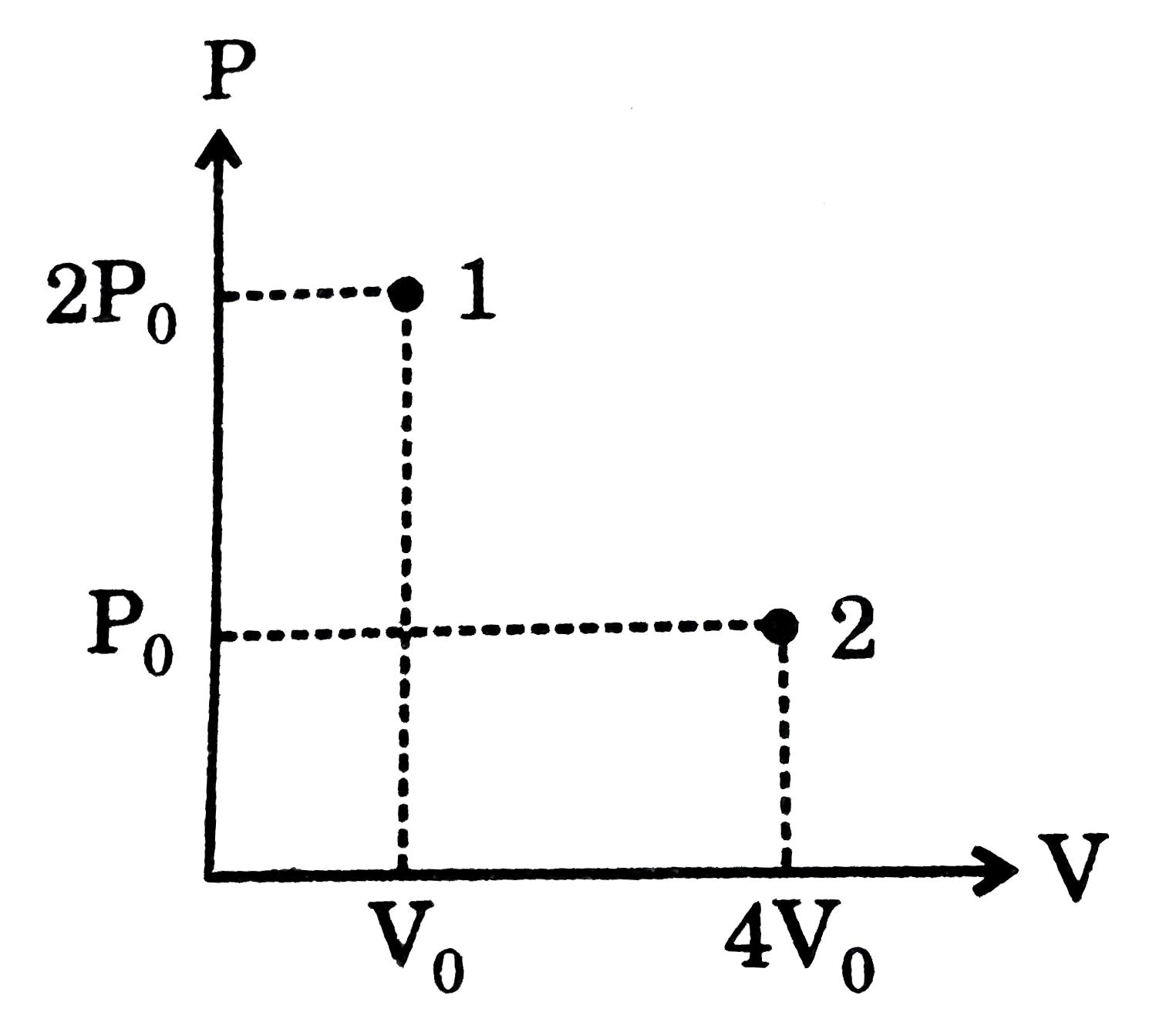
View Solutionq.w, `DeltaE` and `DeltaH` for the following process ABCD on a monoatomic gas are:
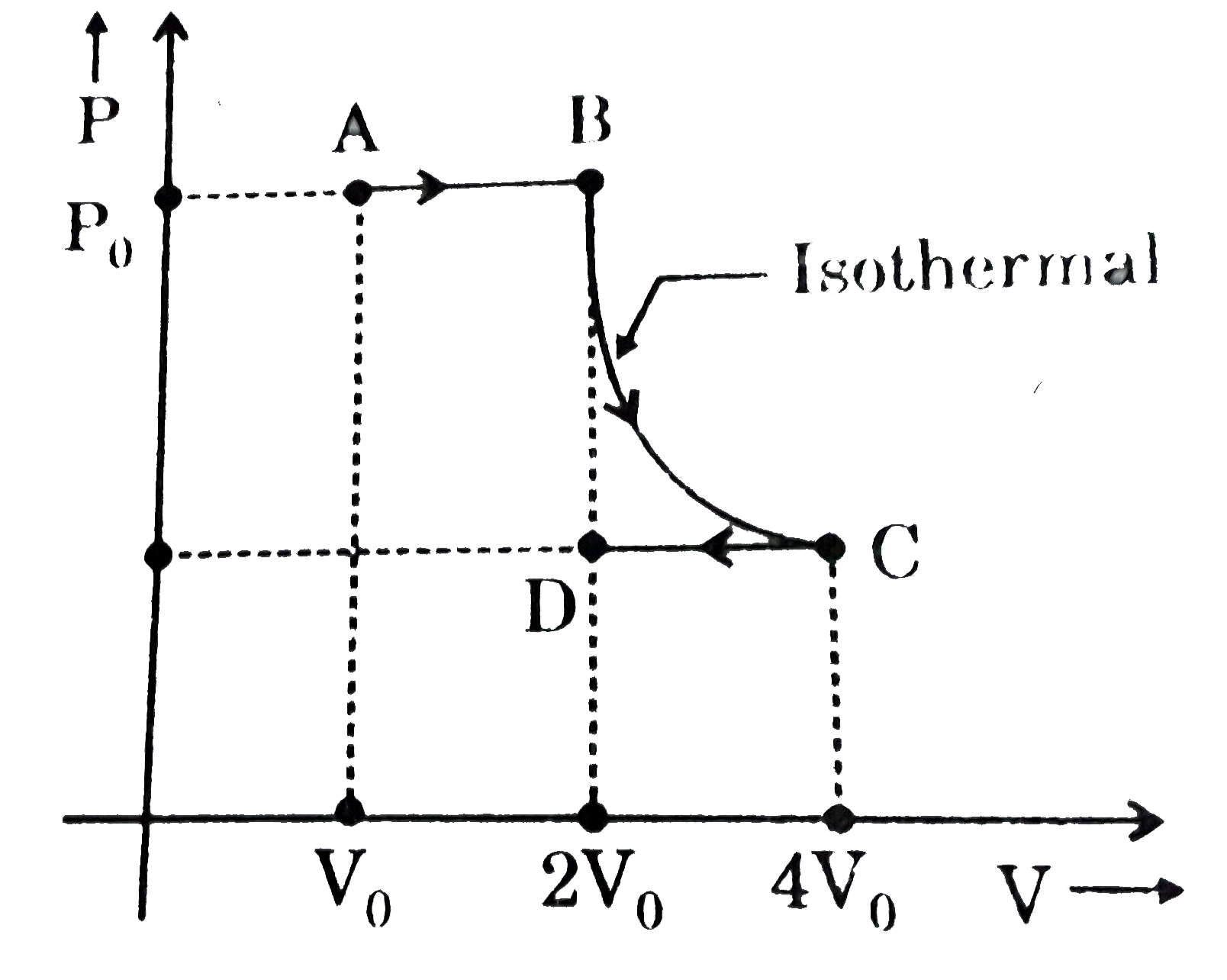
View SolutionThe graph given below shows the P-V plot for a process on an ideal gas. Select the correct statement.
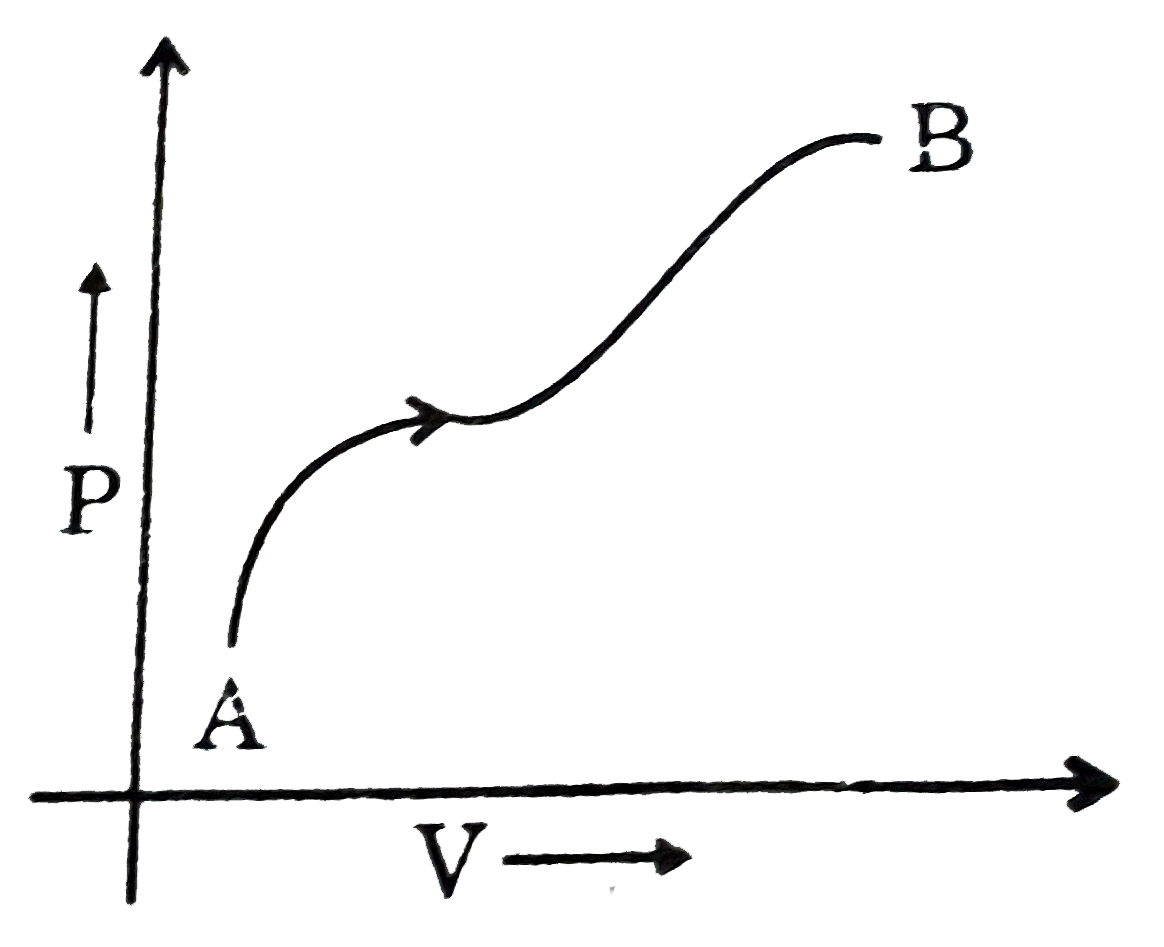
View SolutionCalculate work done in given process (Take `:pi =(22)/(7))`
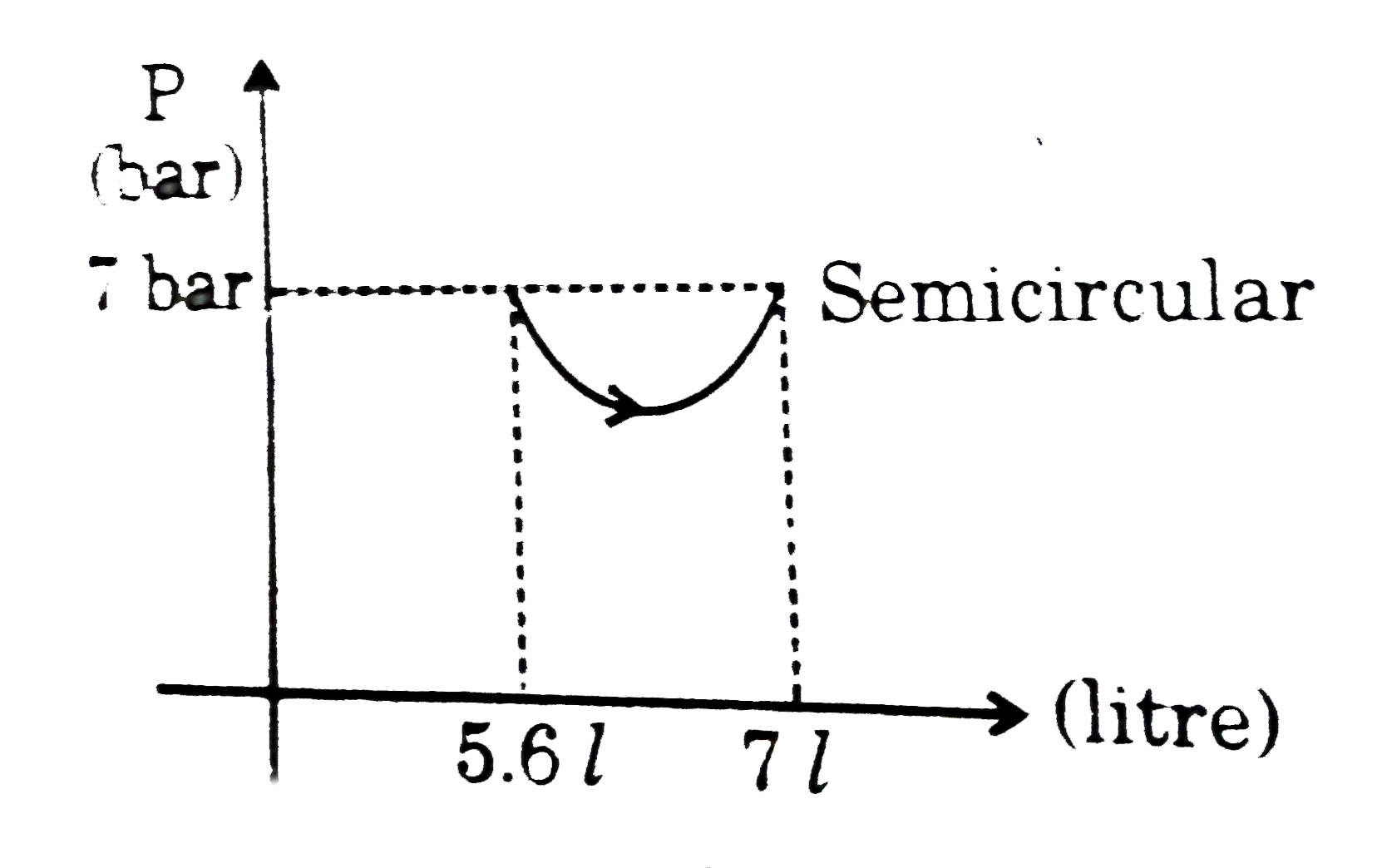
View SolutionFor 1 mol of an ideal gas work in process AB will be:
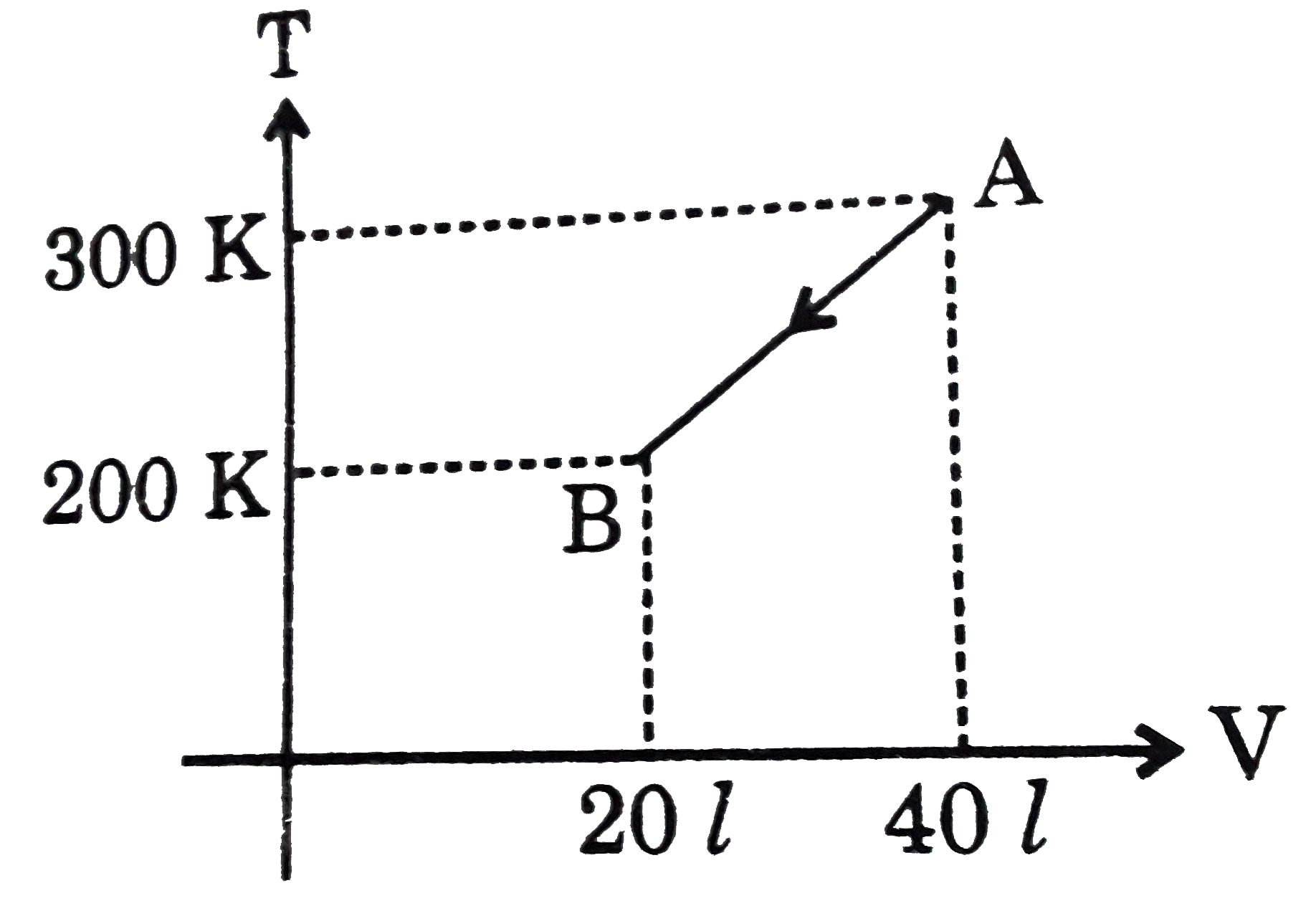
View SolutionAn ideal gas which has `gamma = 4//3` is taken from A to B according to the diagram then calculate enthalpy change for ideal gas:
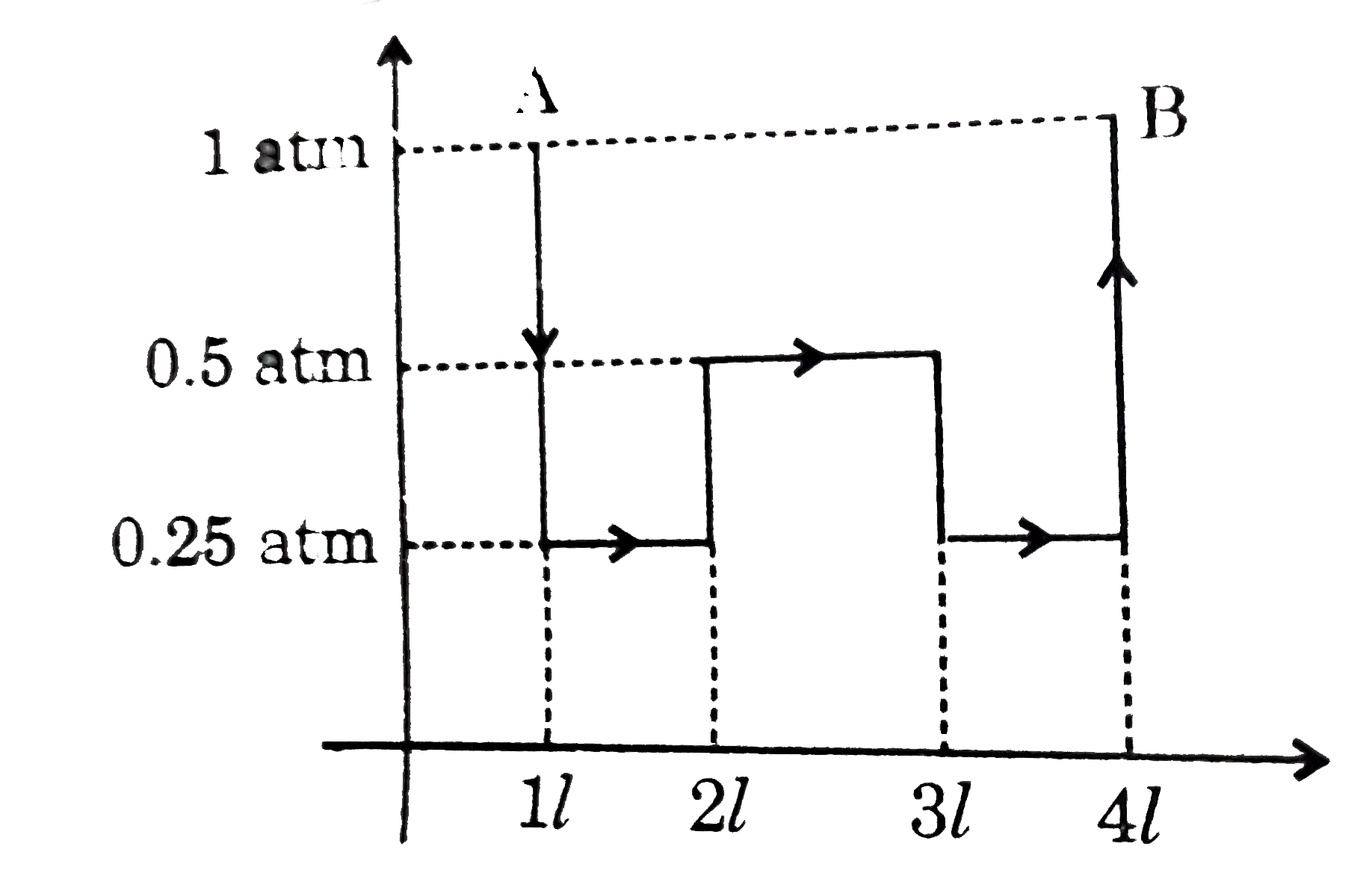
View SolutionThe P-T graph, as given below, was observed for a process on an ideal gas. Which of the statement is true ?
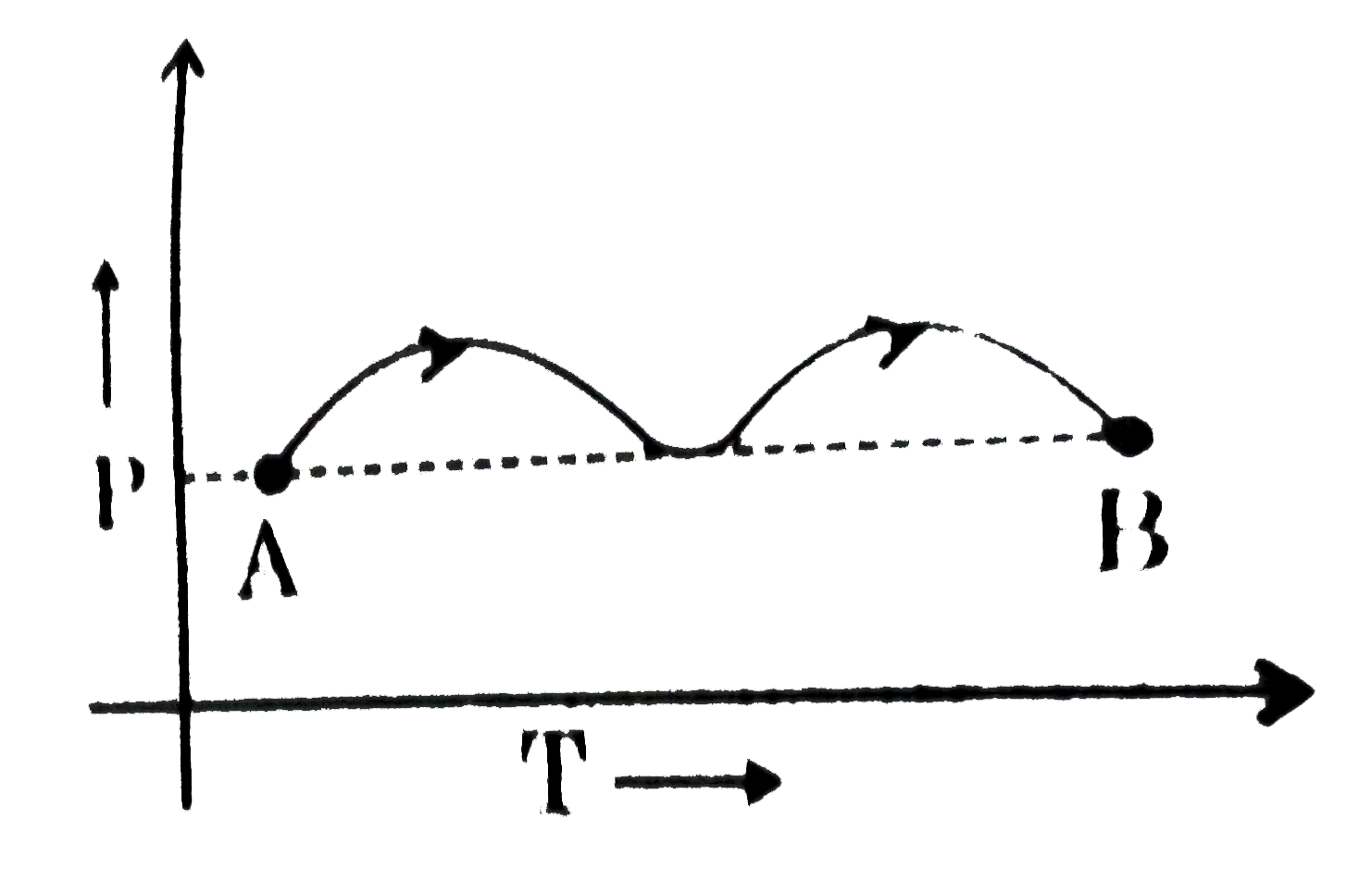
View SolutionOne mole of an ideal gas is undergoing process as shown in figure then what is the shaded area (atm-L) in the graph. (ln 5 = 1.5)
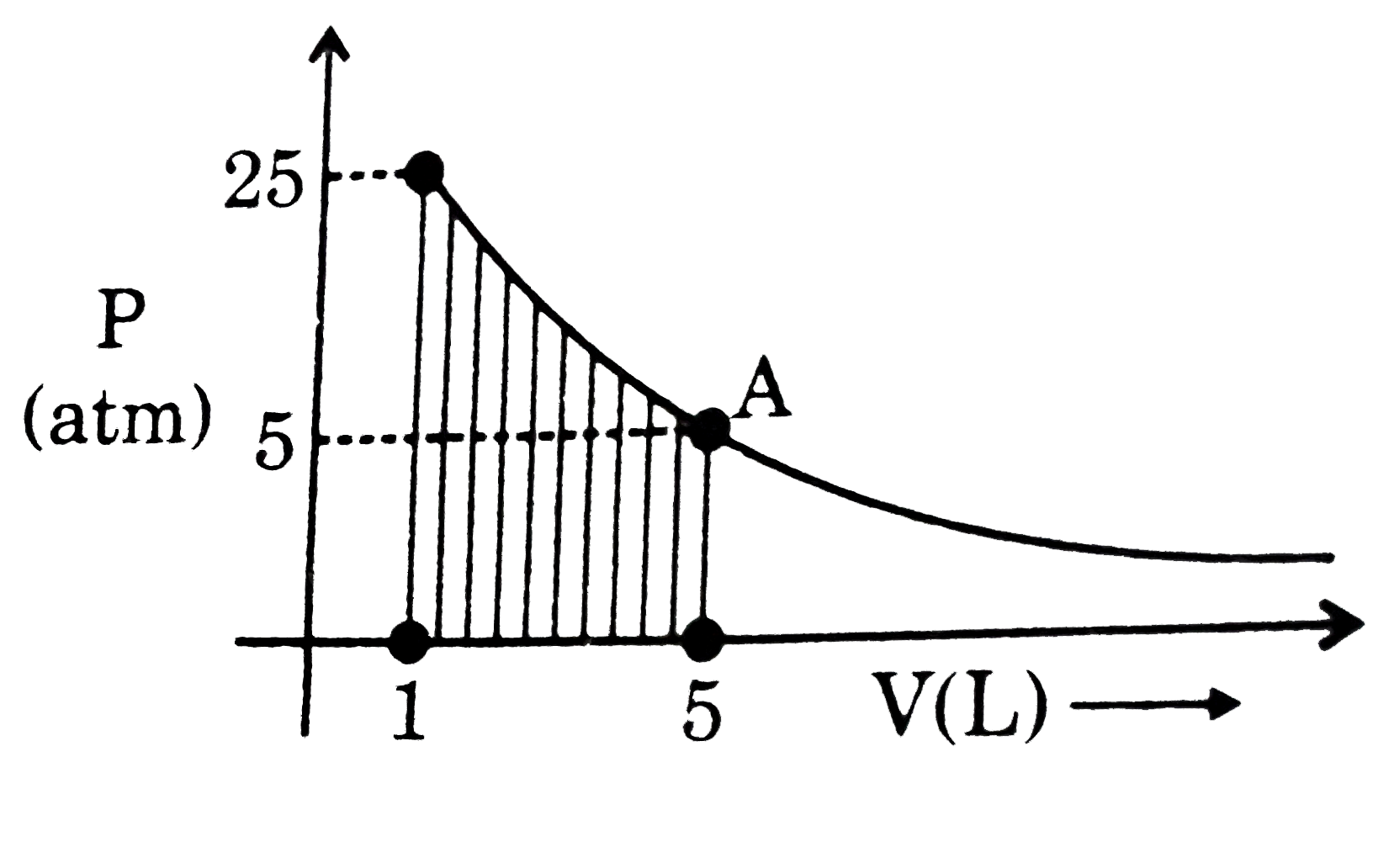
View SolutionIn given cyclic process for an ideal gas
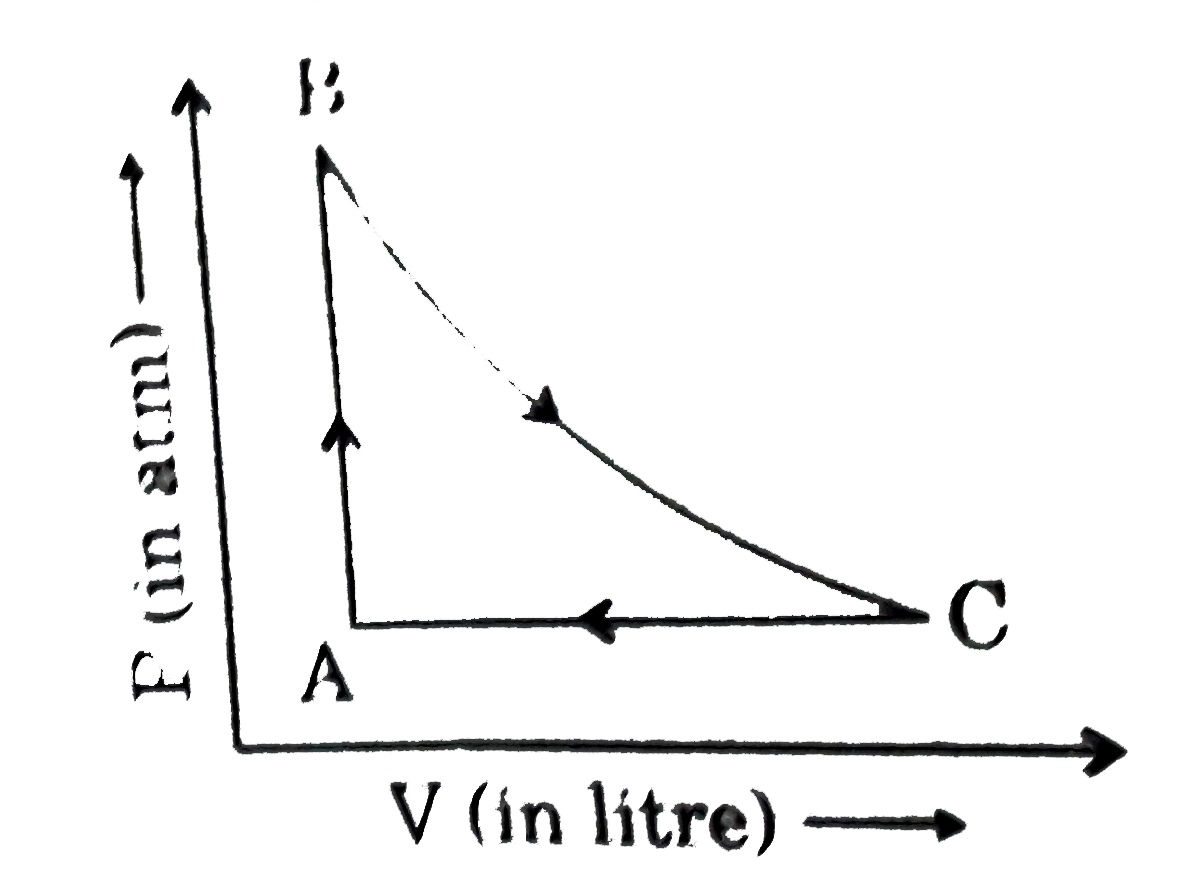
Path `B rarr C` is isoentropic. Then select the correct options:
View SolutionFor an ideal gas four processes are marked as 1,2,3 and 4 on P-V diagram as shown in figure. The amount of heat supplied to the gas in the process 1,2,3 and 4 are `Q_(1),Q_(2),Q_(3)` and `Q_(4)` respectively, then correct order of heat supplied to the gas is:
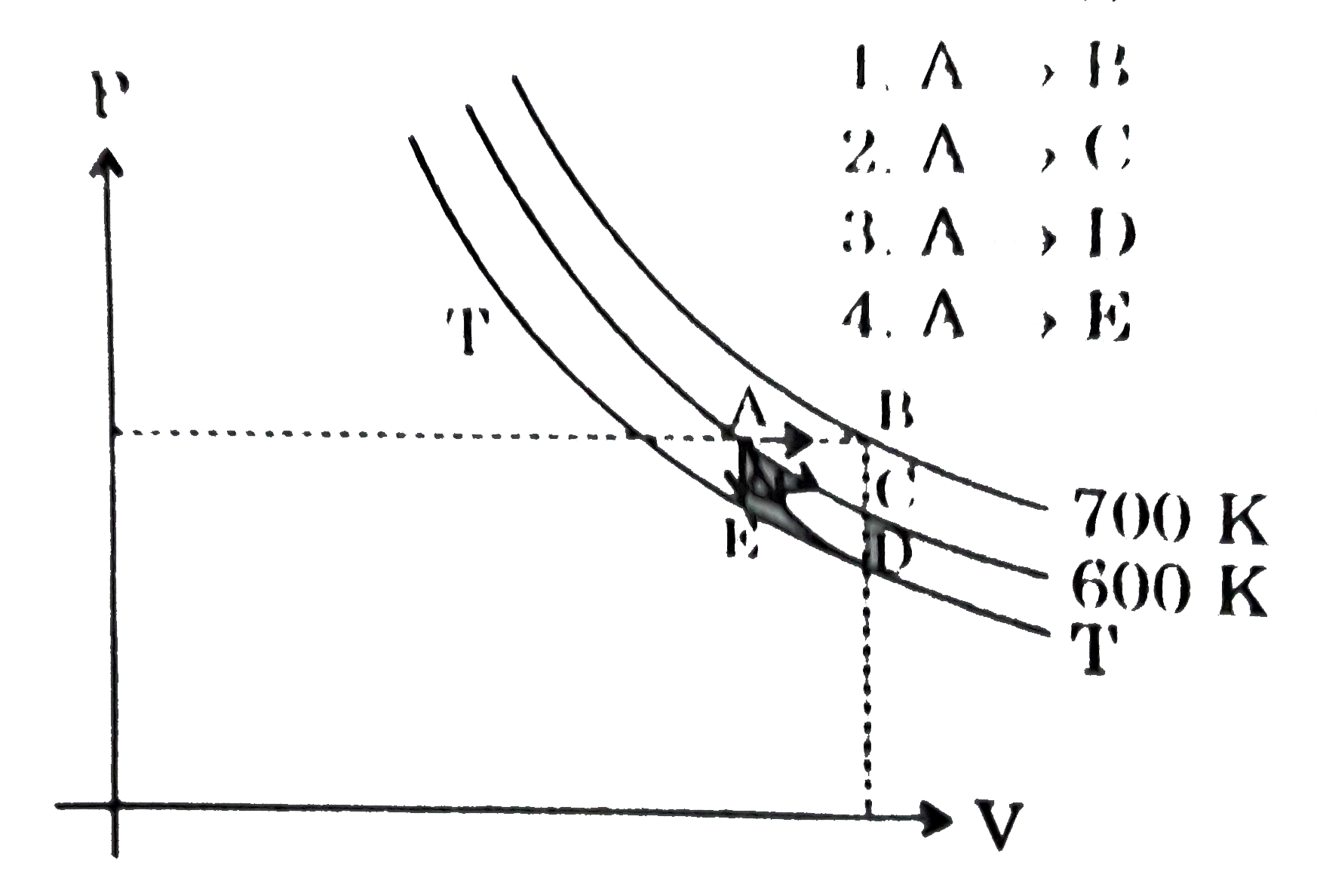
View SolutionConsider the cyclic process `R rarr S rarr R` as shown in the fig. You are told that one of the path is adiabatic and the other one isothermal. Which one of the following is (are) true ?
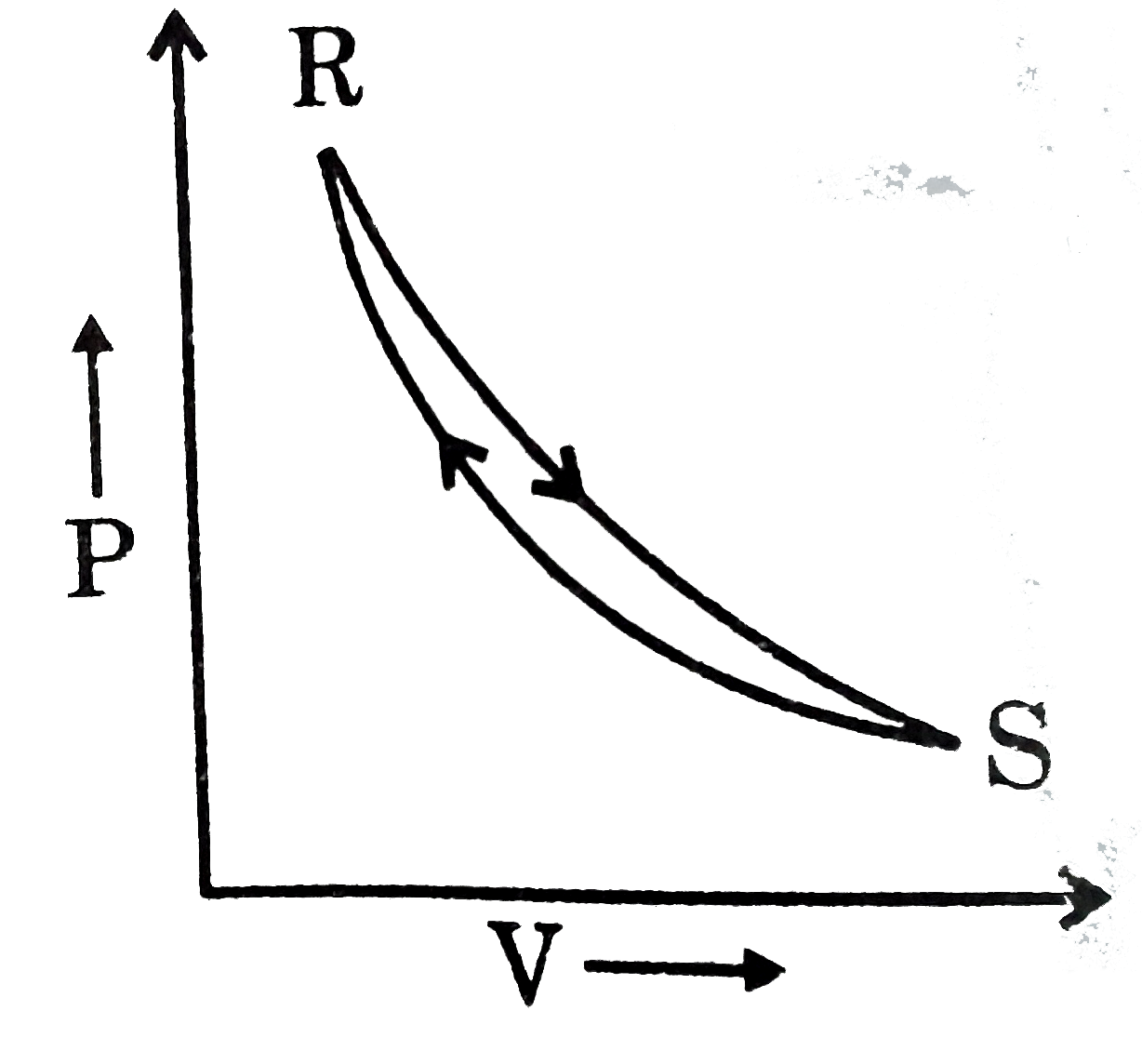
View SolutionAn ideal gas is taken from the same initial pressure `P_(1)` to the same final pressure `P_(2)` by three different processes. If it is known that point 1 corresponds to a reversible adiabatic and point 2 corrresponds to a single stage adiabatic then:
View SolutionIf the plot `1 rarr 2` represents an infinite stage adiabatic process and `1 rarr 3` represents a single stage adiabatic, then identify the correct statemet.
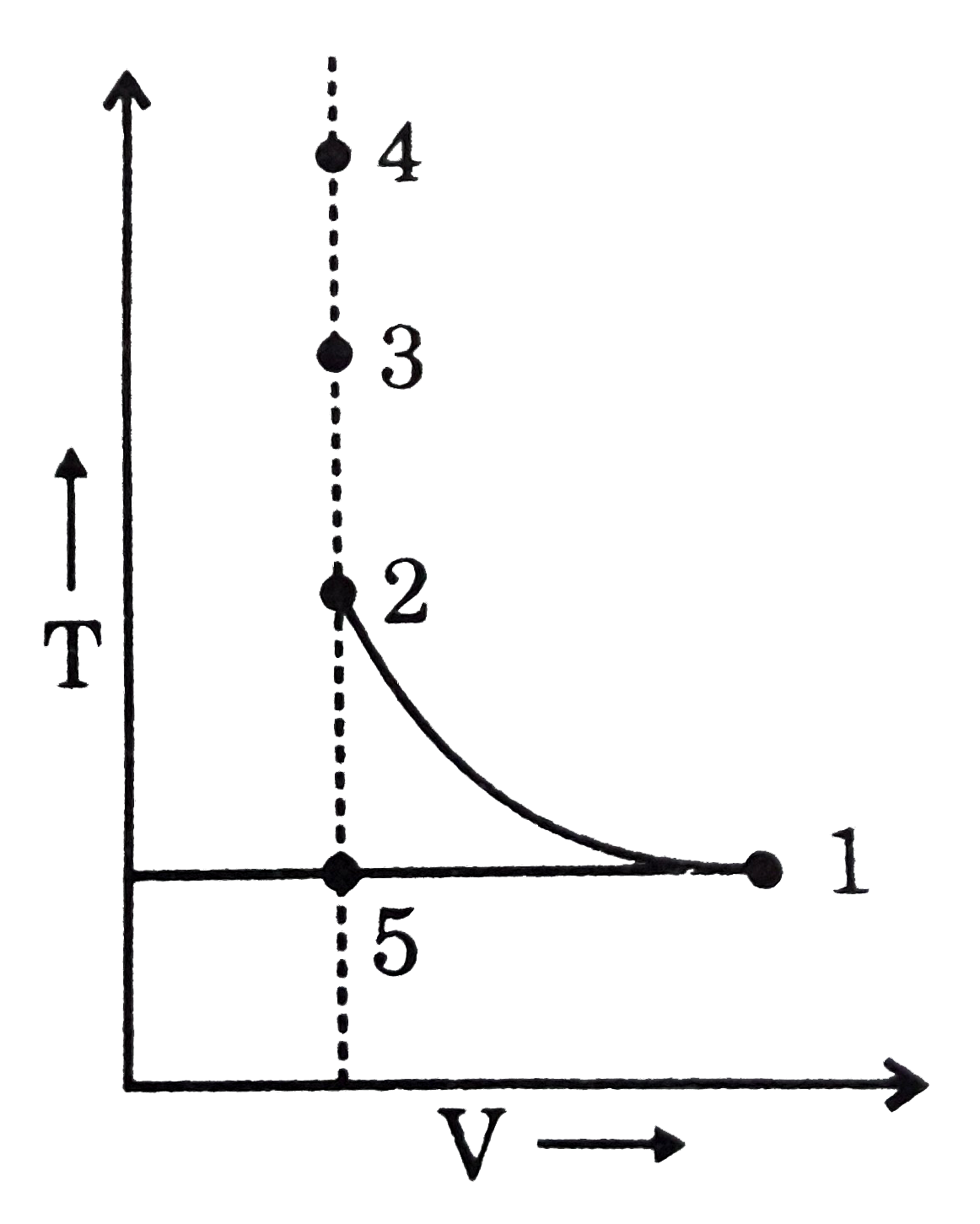
View SolutionWhich of the following graph correctly represents variation of P vs V for two gases `CH_(4)` and `SO_(3)` subjected to reversible adiabatic compression from same initial condition. (Assume that vibrational degrees of freedom are not active.)
View SolutionA substance is subjected to a four step reversible process ABCD as shown. Identify the correct statements out of the following.
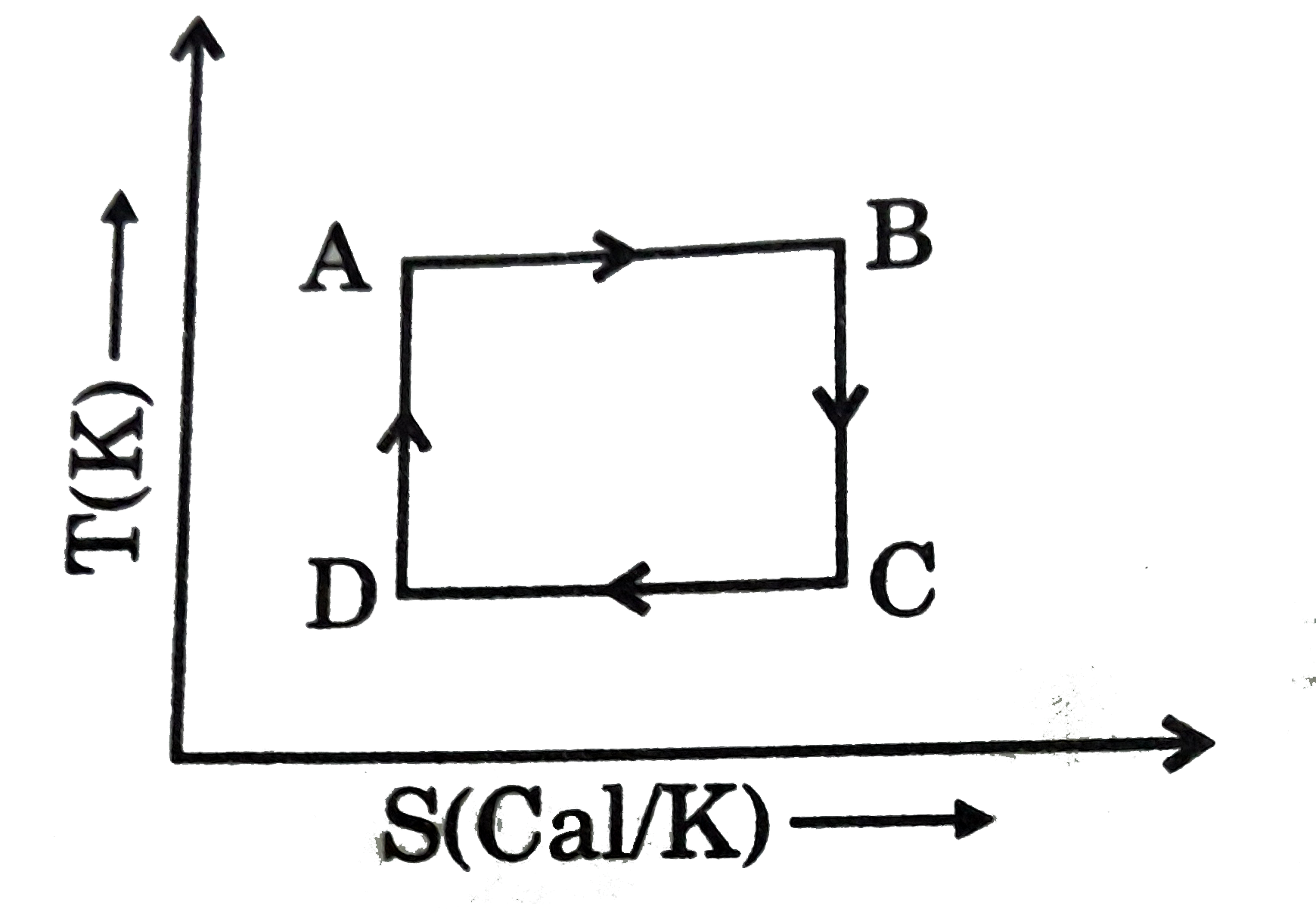
View SolutionFor 1 mole of an ideal gas, a graph of pressure vs volume is plotted as shown. Which of the following option is correct ?
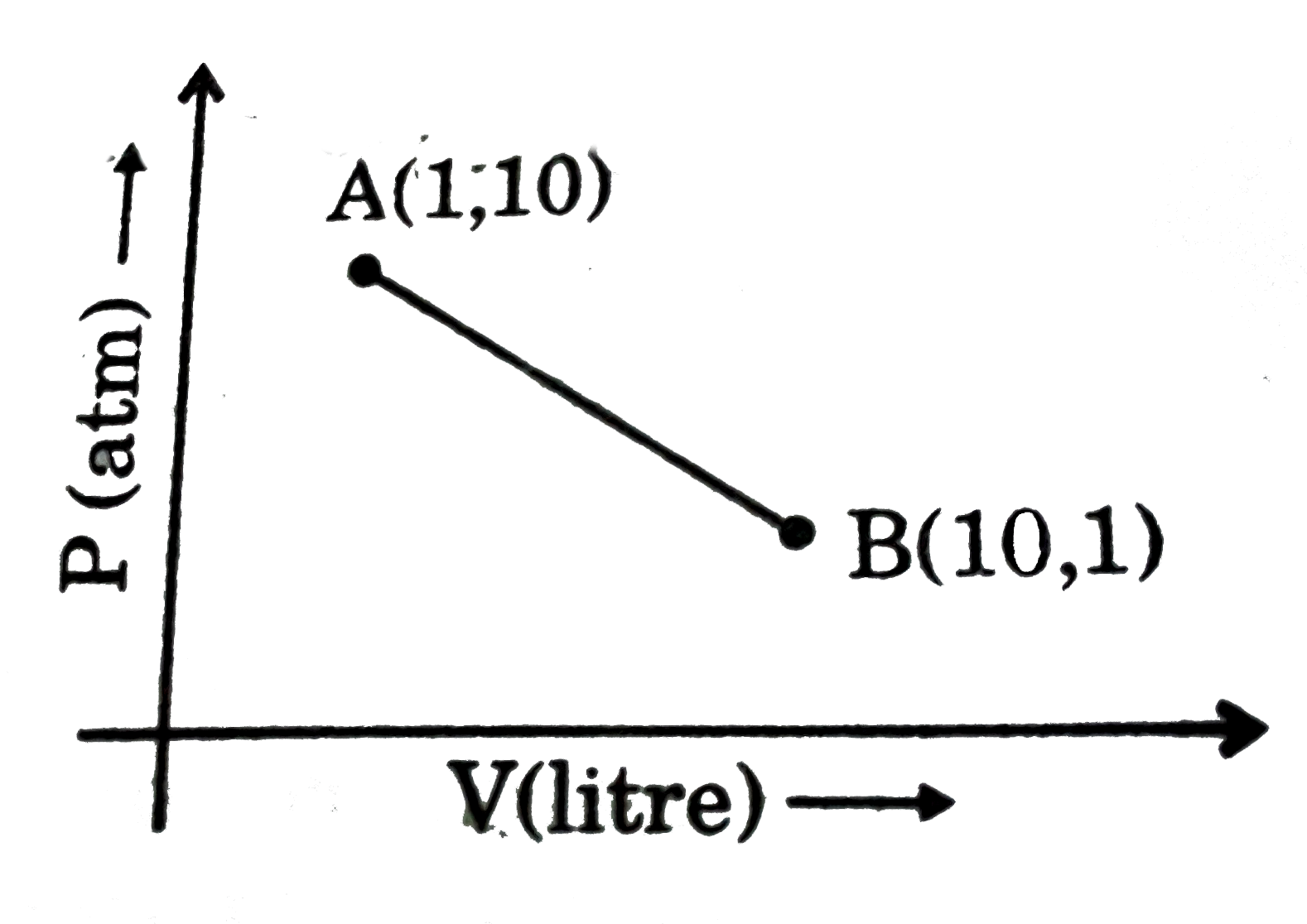
View SolutionA reversible cyclic process is represented as shown. The efficiency of the process is :
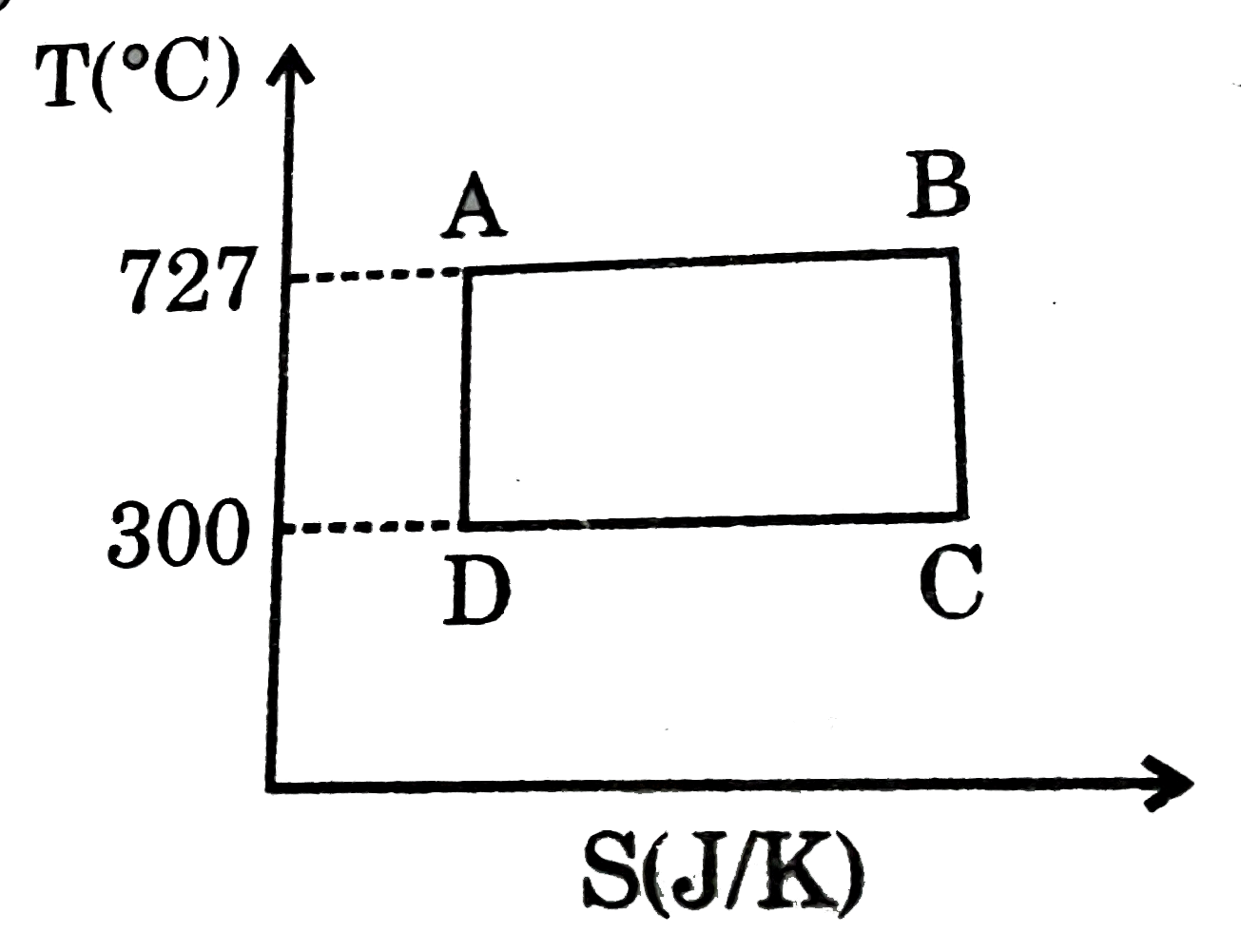
View SolutionCalculate magnitude of work done in calorie for one mole of an ideal gas subjected to the process as shown in figure. [Use: `R = 2 cal//mol-K` and ln `2 = 0.7`]
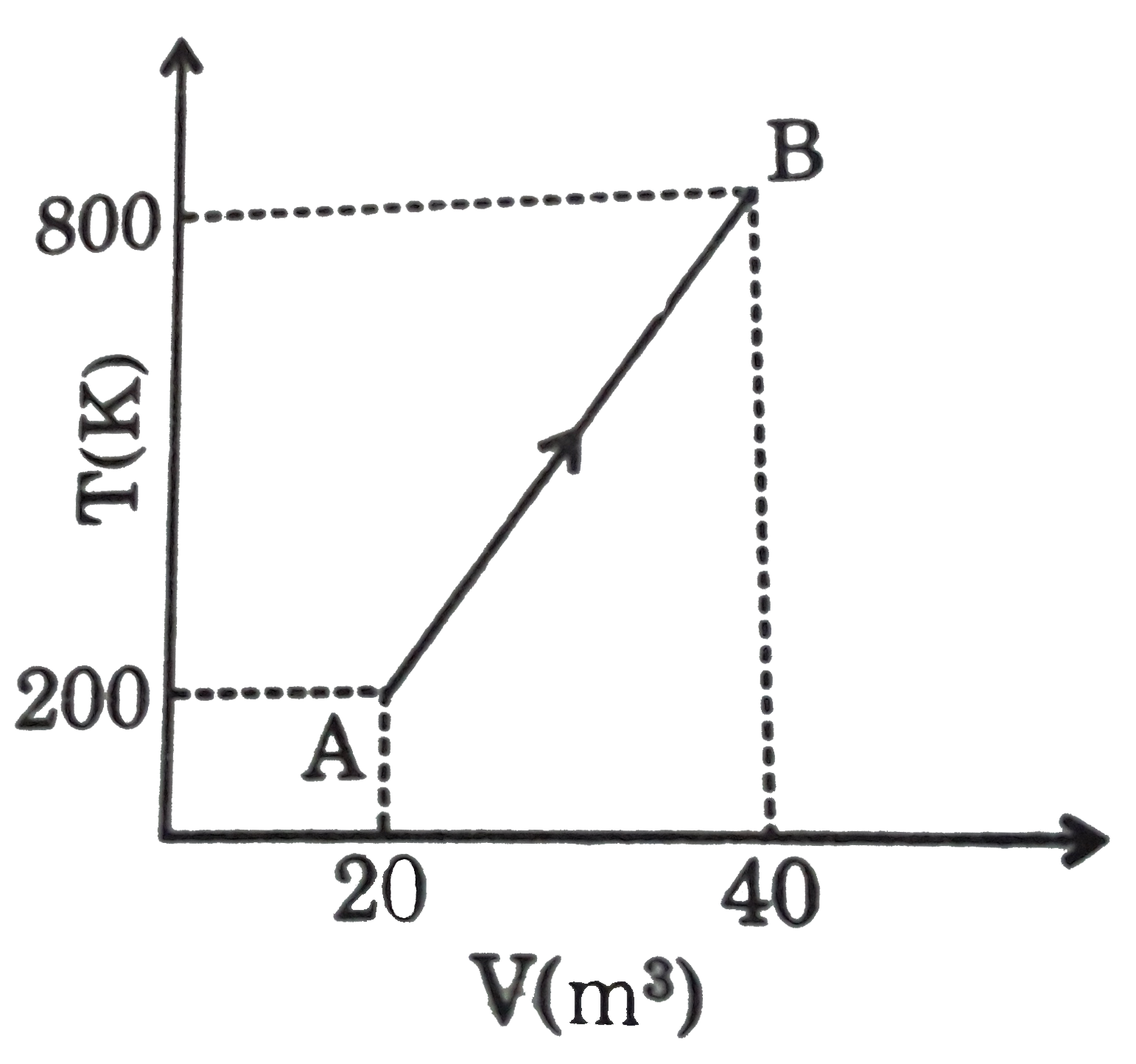
View SolutionAn ideal gas in subjected to a three step reversible process as shown. The amount of heat absorbed in the overall process will be: [ln `2 = 0.693, 1 L-atm = 101.325 J`]
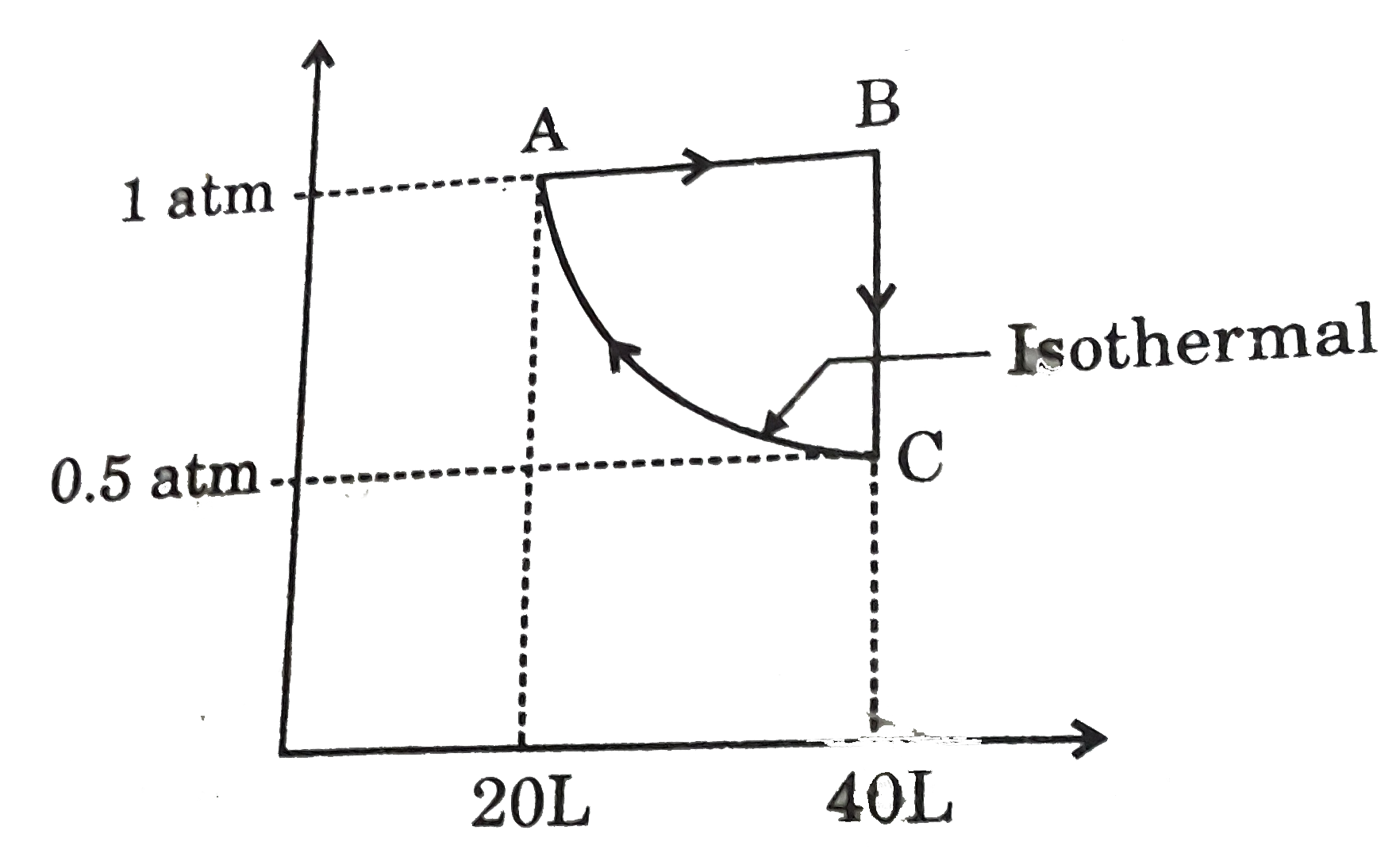
View SolutionIn an experiment to determine the enthalpy of neutralisation of sodium hydroxide with sulphuric acid, `50 cm^(3)` of `0.4M` sodium hydroxide were titreated thermometrically with `0.25M` sulphuric acid. Which of the following plots gives the correct representation ?
View SolutionChemicals A and B each initially at `20^(@)C` react exothermically. A graph of the final temperature reached by mixing equimolar solutions of A and B to a total of `100 mL` is given below. According to this graph, in what mole ratio does A and B react ?
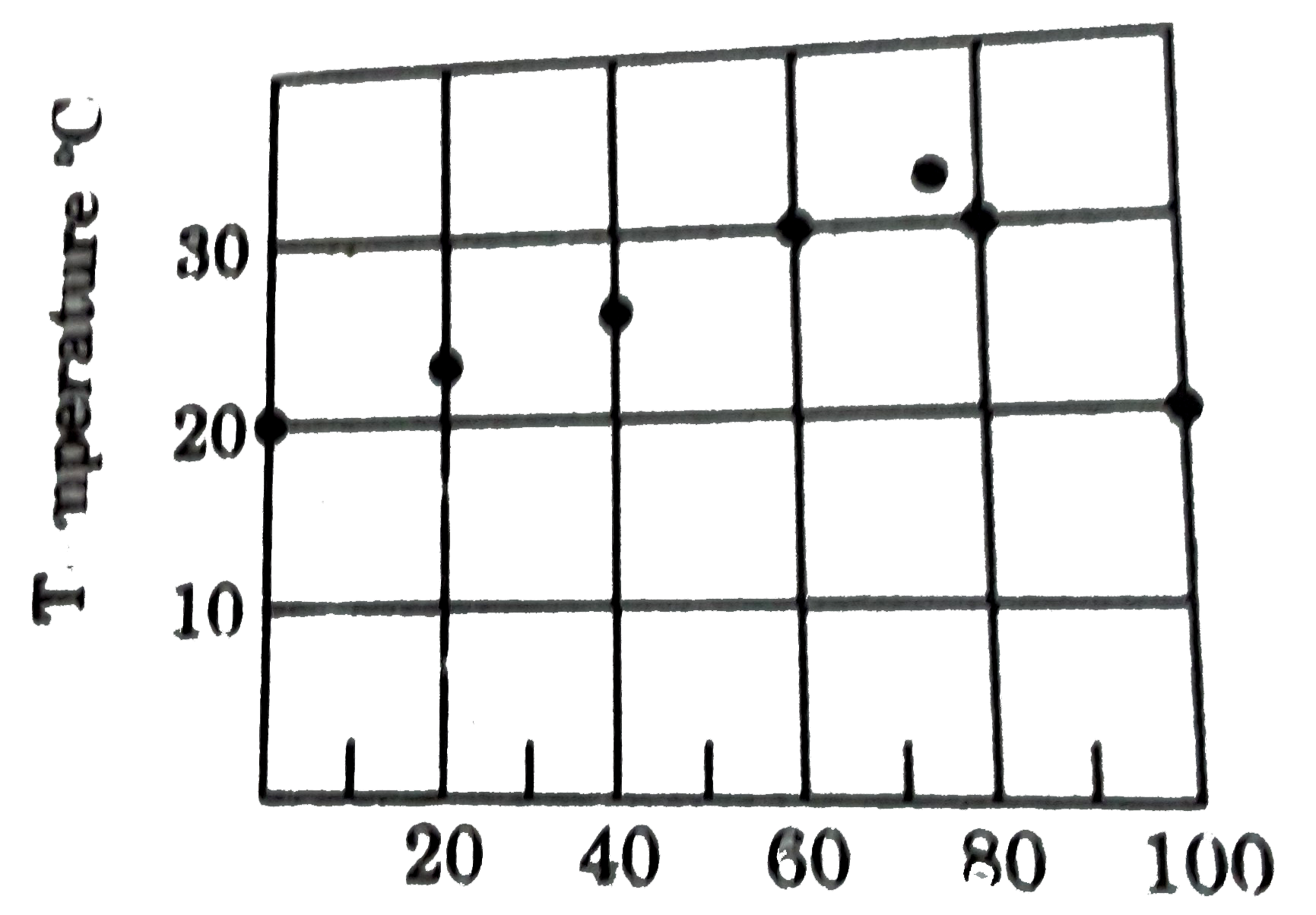
View SolutionAn ideal gas is subjected to various changes which are plotted as following: The correct order of process I, II and III respectively is :
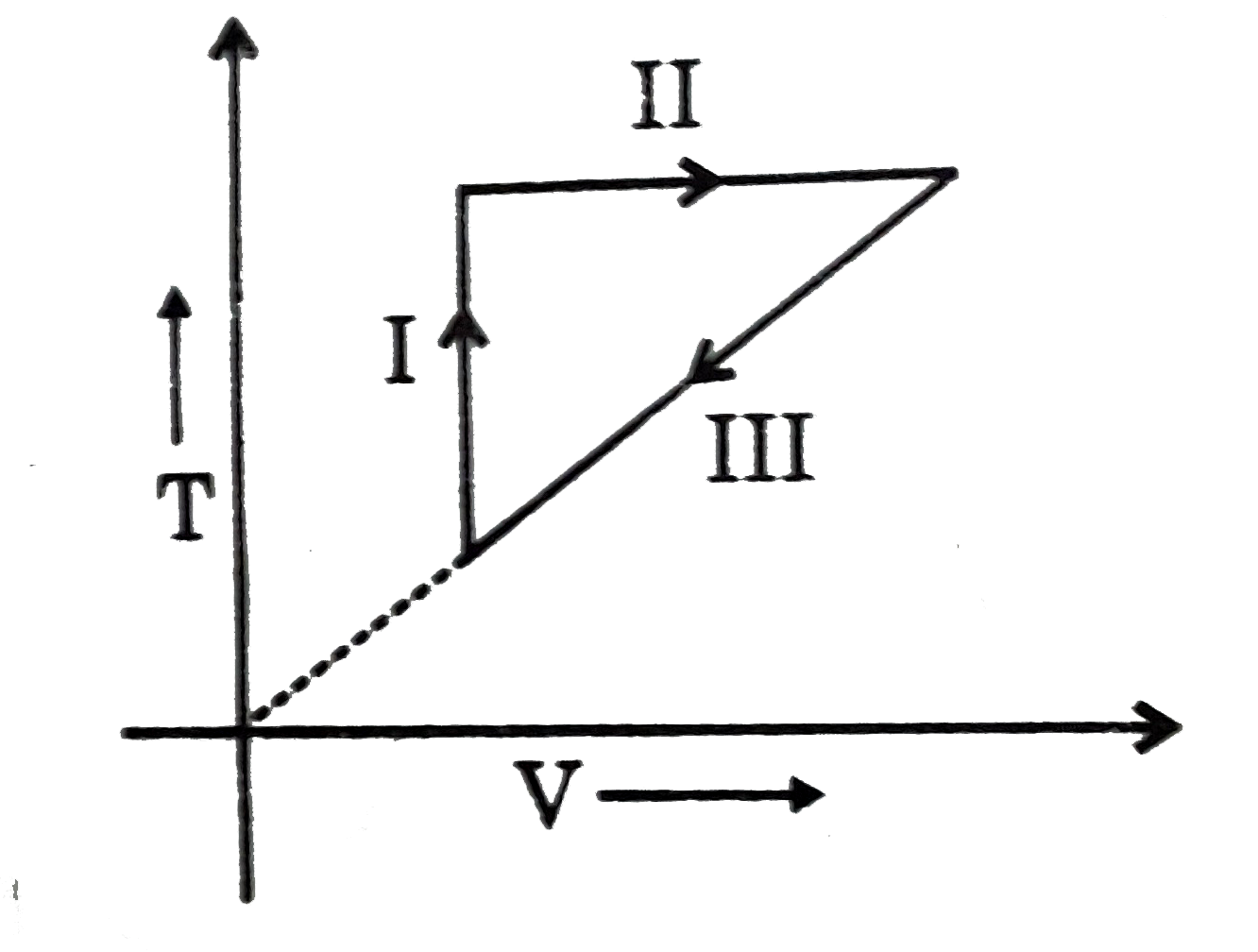
View SolutionA thermodynamic process is shown in the following figure. In the process AB, 600 J of heat is added to the system and in BC, 200 J of heat is added to the system. The change in internal energy of the system in the process AC would be:
`P_(A) = 3 xx 10^(4) Pa, V_(A) = 2xx 10^(-3) m^(3)`
`P_(B) = 8 xx 10^(4) Pa, V_(C) = 5 xx 10^(-3) m^(3)`
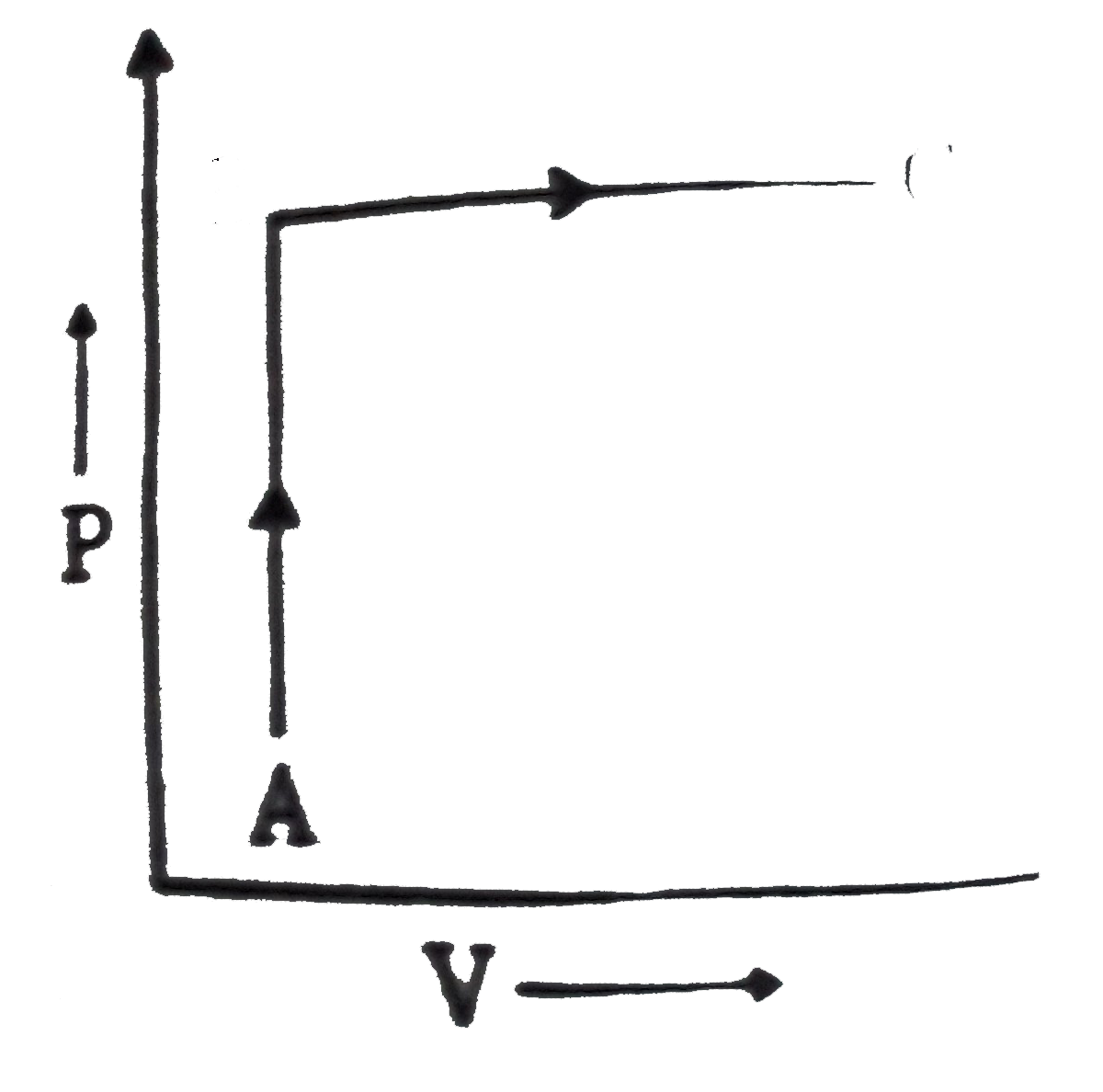
View SolutionWhich of the following graph is correct reversible adiabatic process for an ideal gas:
View SolutionWhich process is identical with the cyclic process shown below ? If AB and CD are adiabatic process.

View SolutionAn ideal gas is subjected to two different process in which it is heated to same final temperature from same initial state (A) as shown in diagram, then :
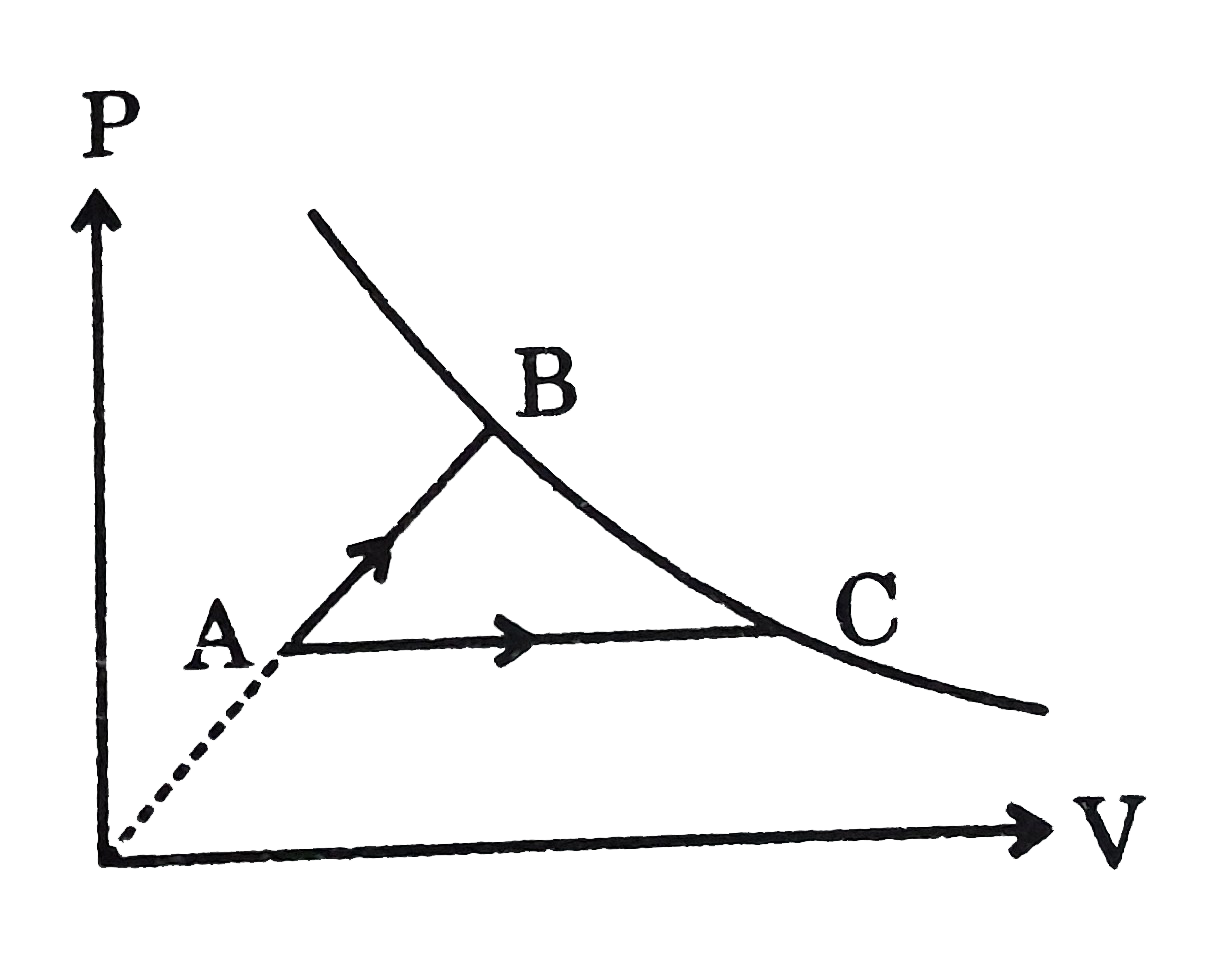
View SolutionWhich is correct for cyclic process as shown in figure ? Choose the correct statement.
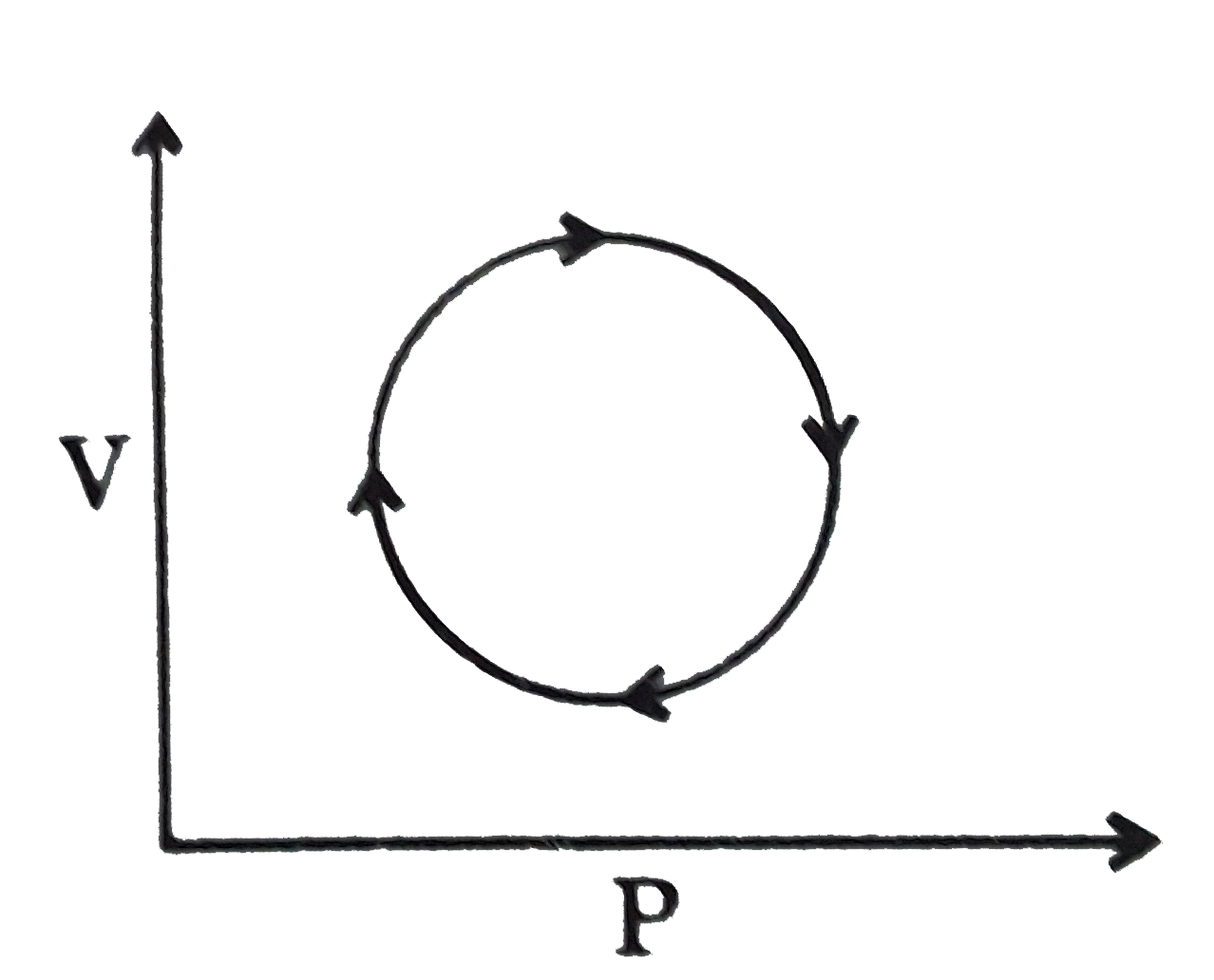
View SolutionFor an ideal gas three adiabatic processes are carried out upto same final pressure from same initial state. If adiabatic reversible process ends up at point B and adiabatic single step irreversible process ends up at point C then adiabatic free expansion upto same final pressure will end up at :
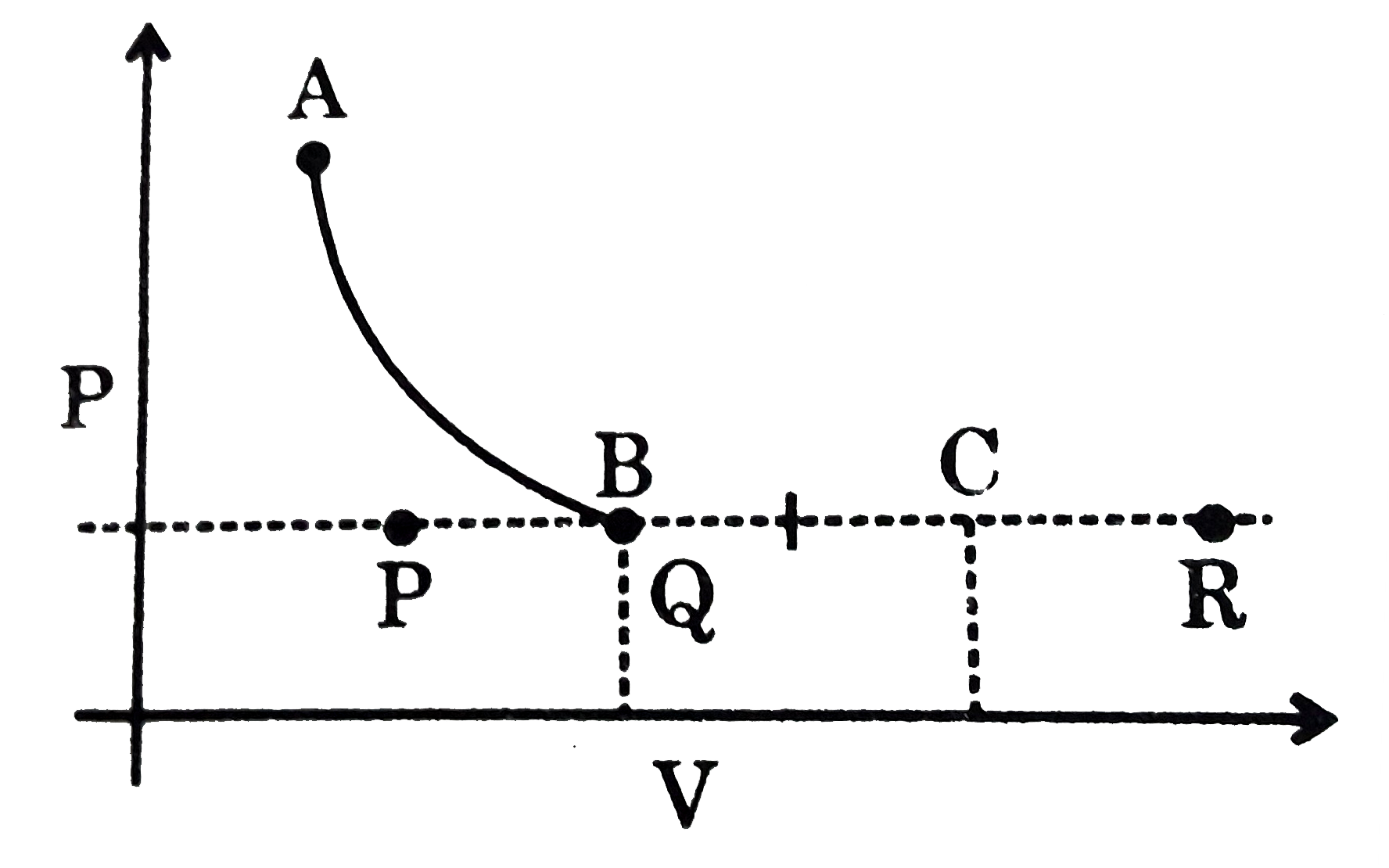
View SolutionA student is calculating the work during a reversible isothermal process, shown by 2 moles of an ideal gas . By mistake he calculated the area as shown in PV graph (shaded area) equal to 49.26 L atm. Calculate the correct value of work (in L atm) during the process.
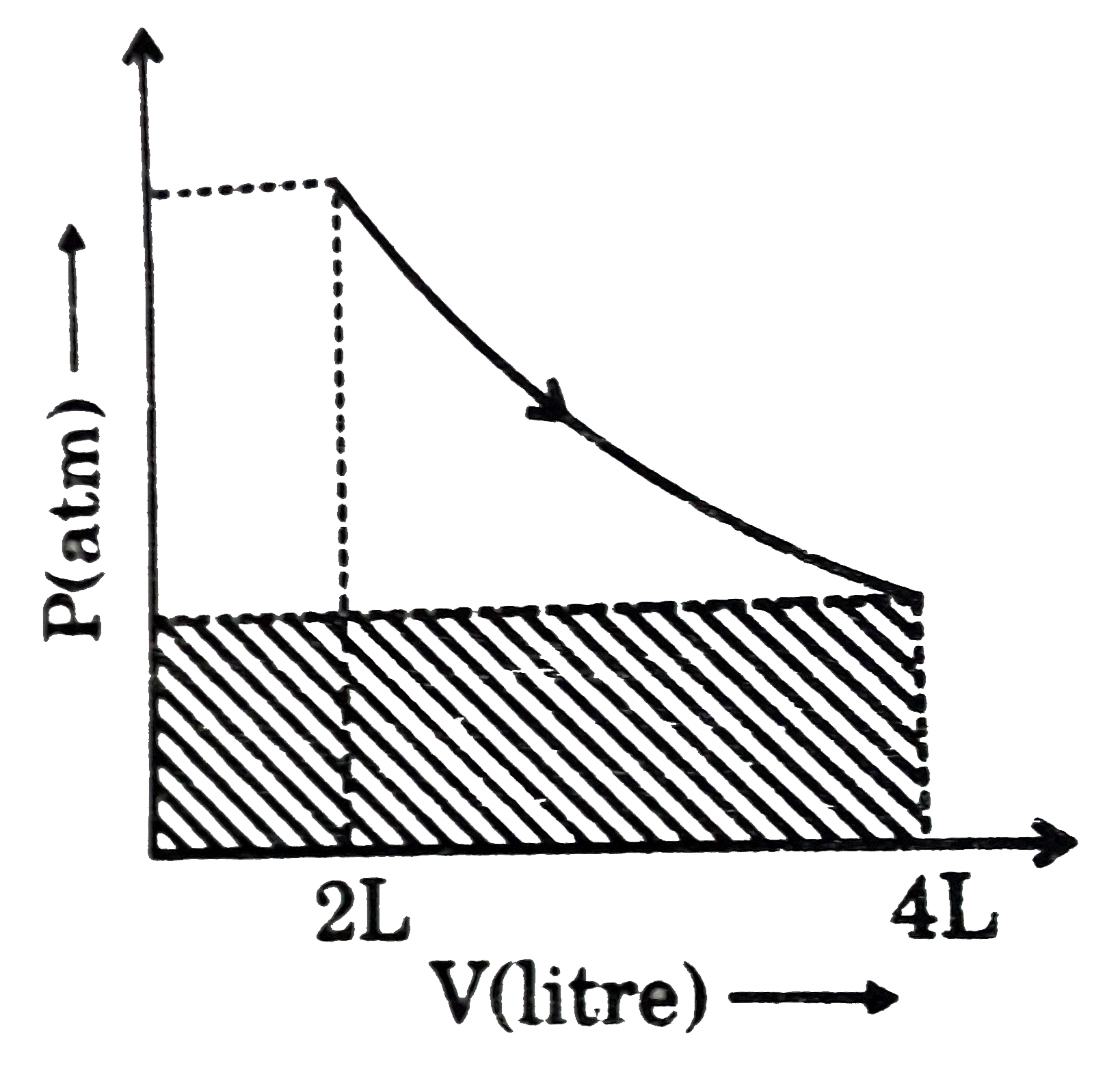
View Solution[At constant temperature and pressure]
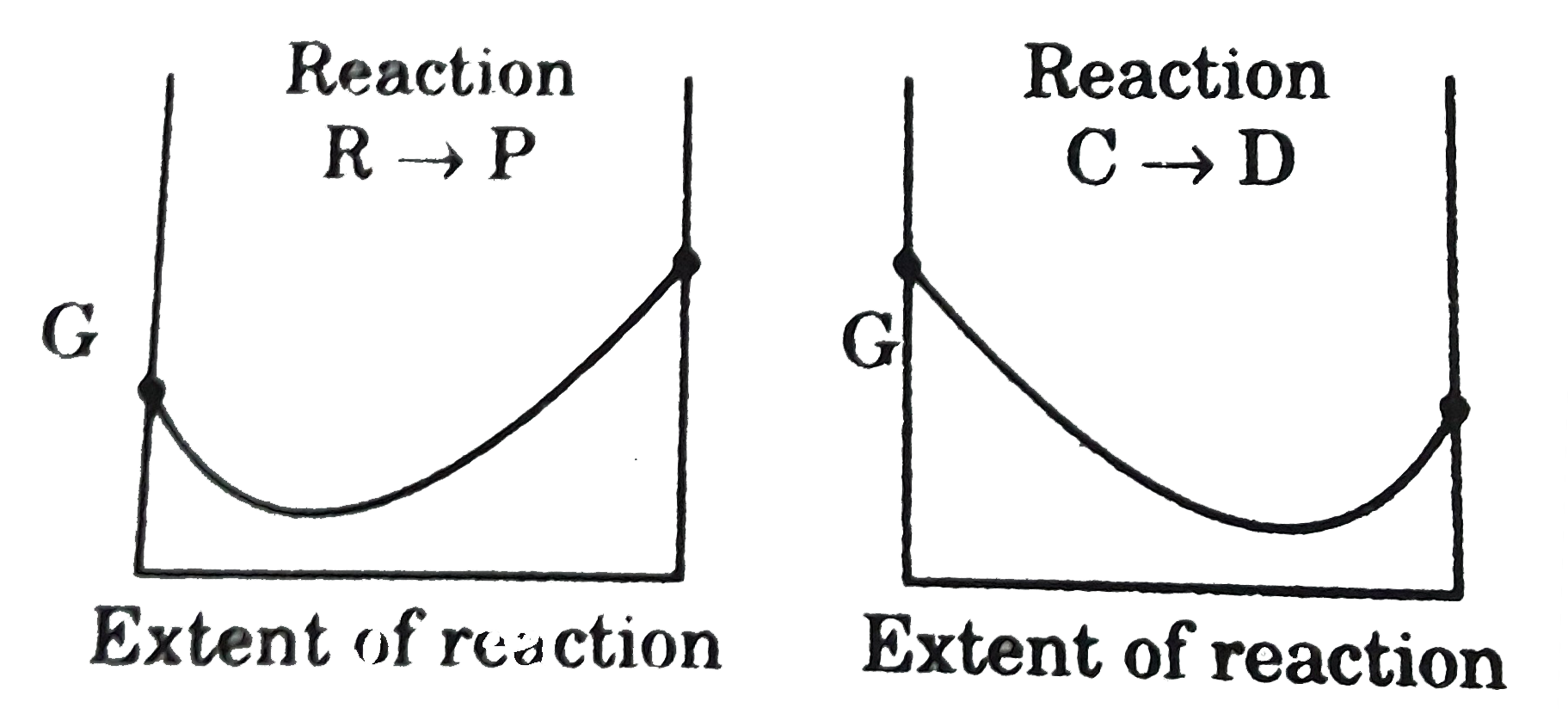
Statement-I : C will partially convert into D.
Statement-II : R will not convert into P.
Statement-III : R will be completely converted into P.
Statement-IV : C will be completely converted in D.
With the help of given curves select the correct order of initials T (true) or F (false) for above statements.
View SolutionIf the internal energy of an ideal gas varies as `U = 2PV` and the gas undergoes an expansion as shown below, then heat absorbed in the process will be :
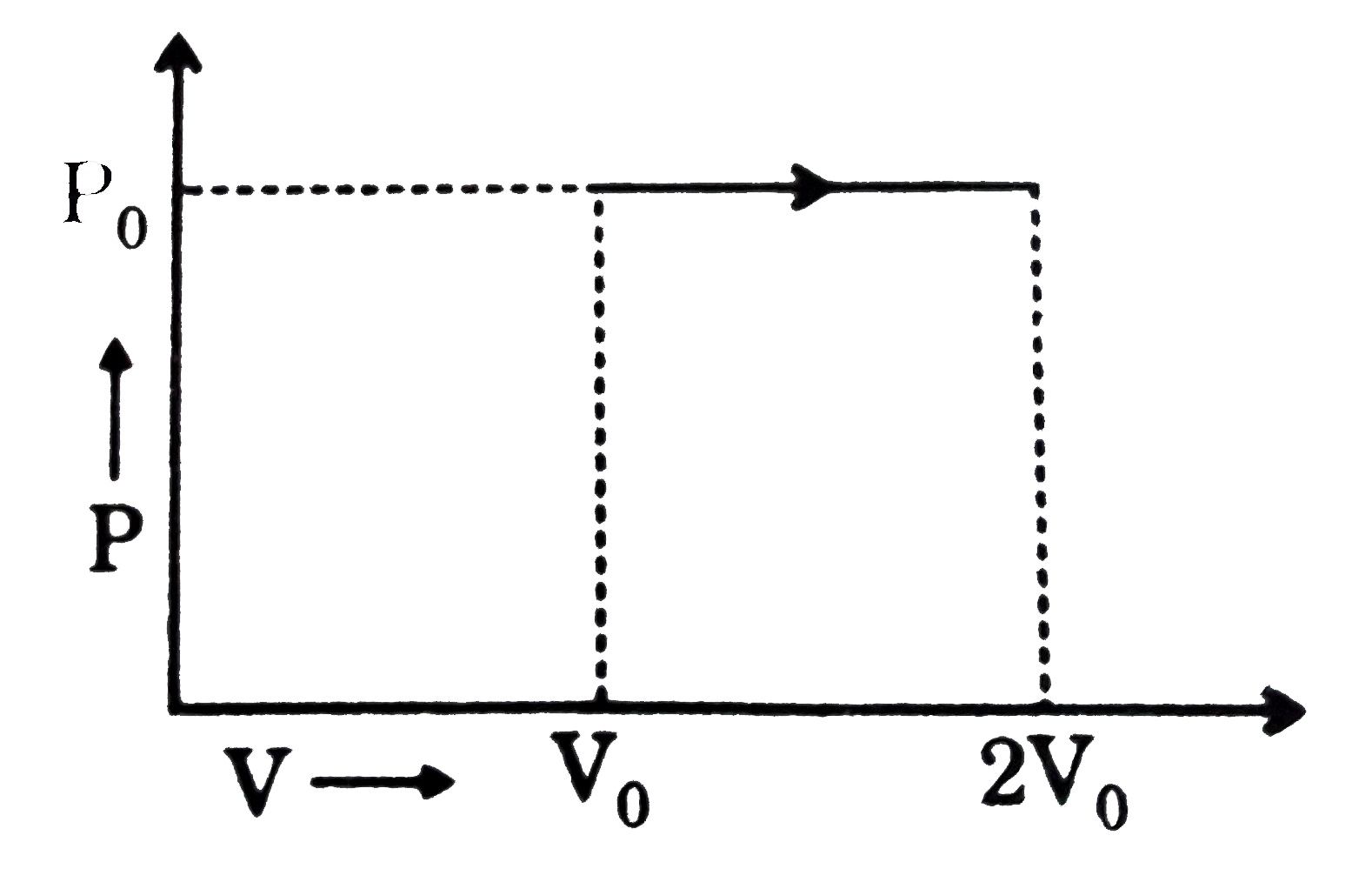
View SolutionThis curve is produced when a pure substance is heated. Which characteristic of this curve is related to the value for the enthalpy of fusion of the substance ?
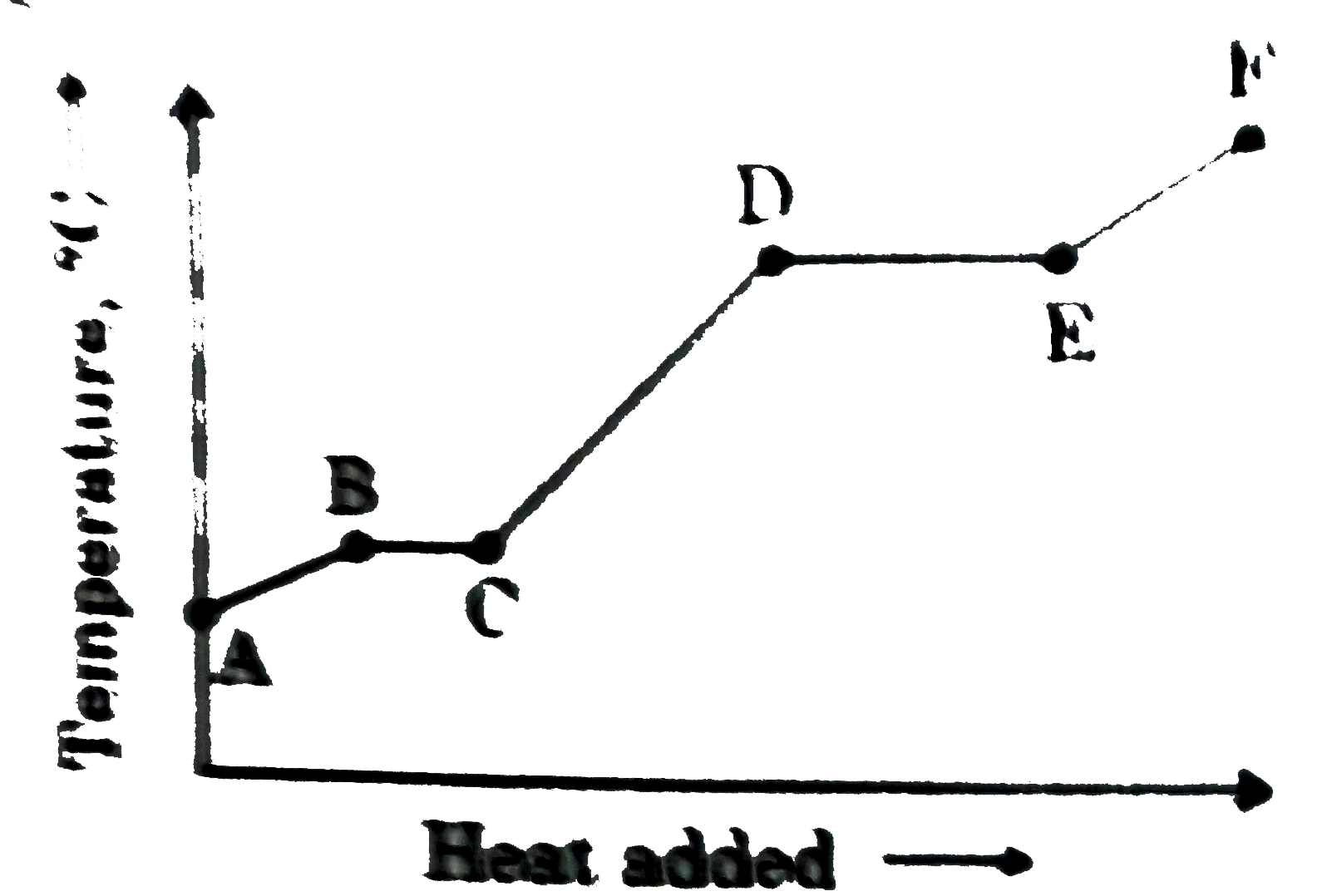
View SolutionWhat can be concluded about the values of `DeltaH` and `DeltaS` from this graph ?
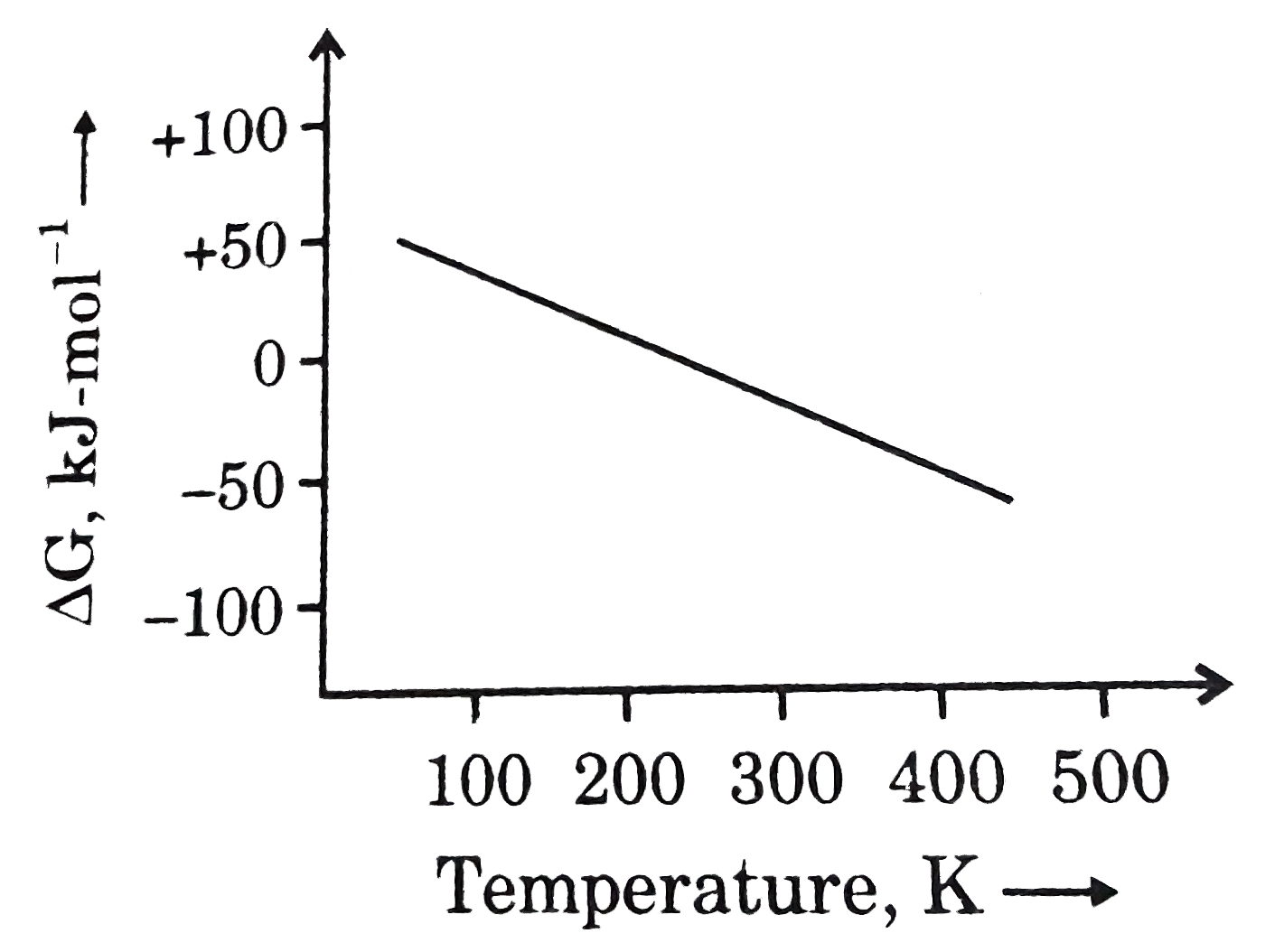
View SolutionThe process in which an ideal gas undergoes change from X to Y as shown in the figure diagram is :
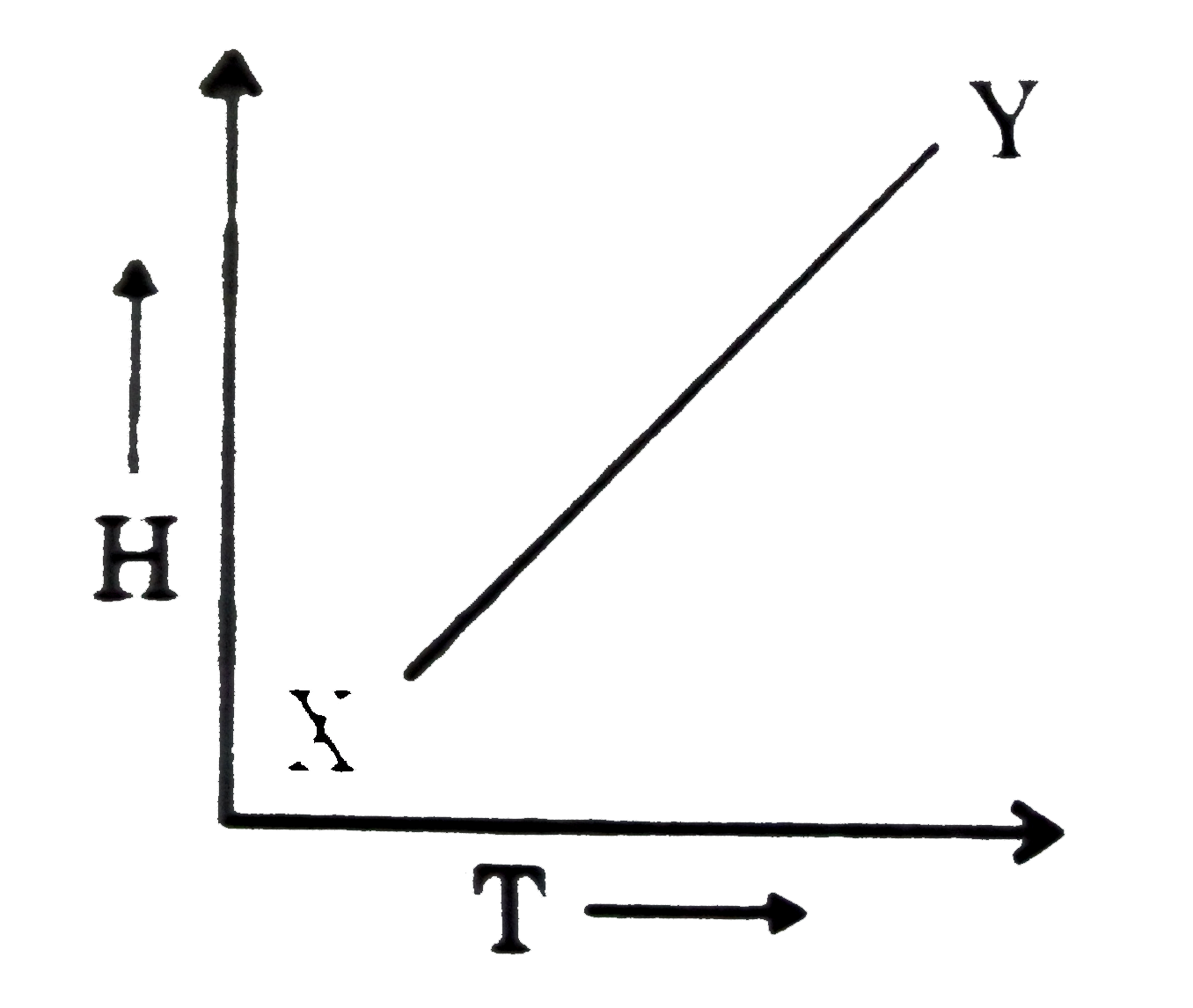
View SolutionAn ideal gas is taken around the cycle ABCA as shown in P-V diagram. The net work done by the gas during the cycle is equal to :
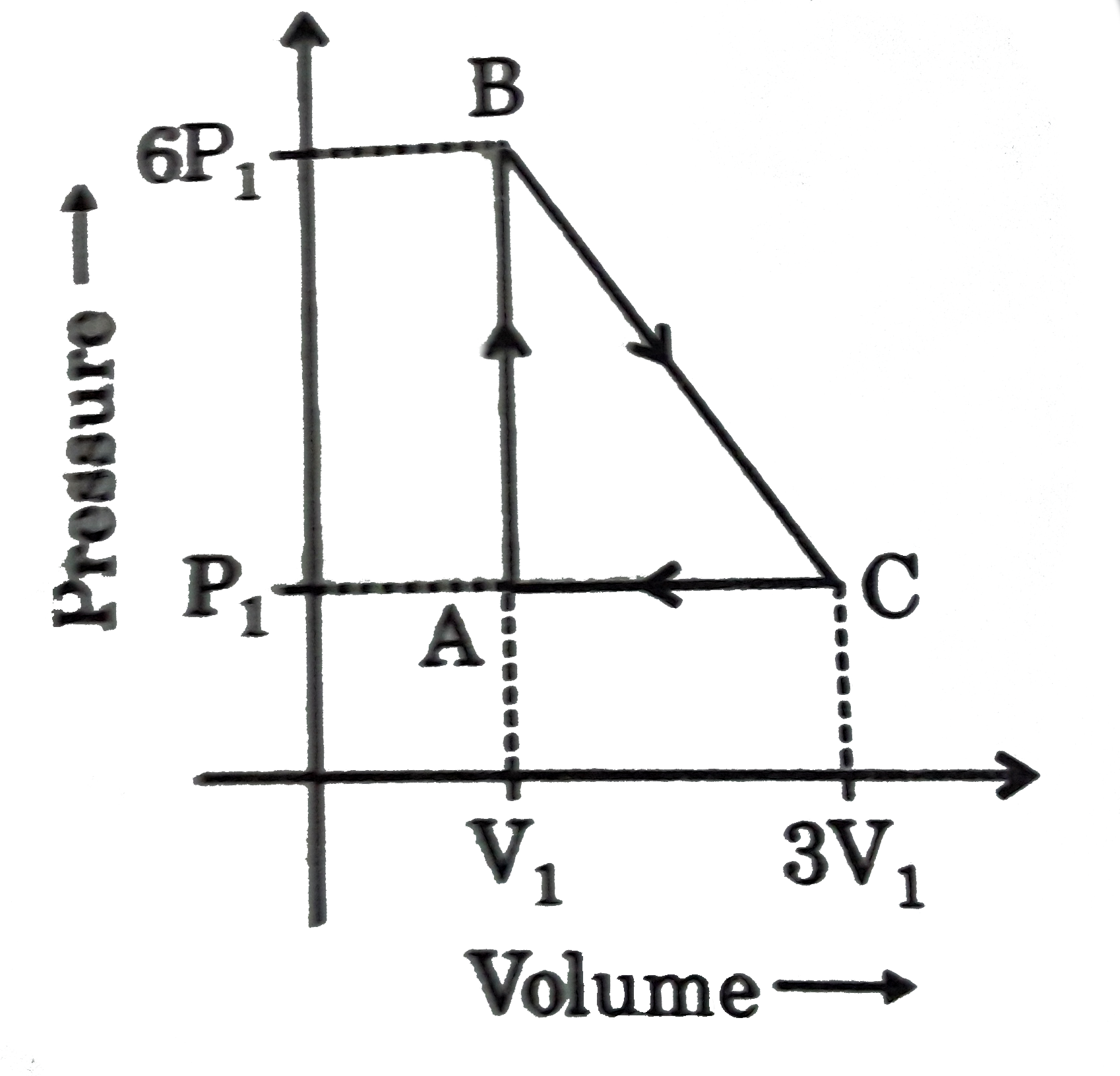
View SolutionA heat engine carries one mole of an ideal monoatomic gas around the cycle as shown in the figure, the amount of heat added in the process AB and heat removed in the process CA are :
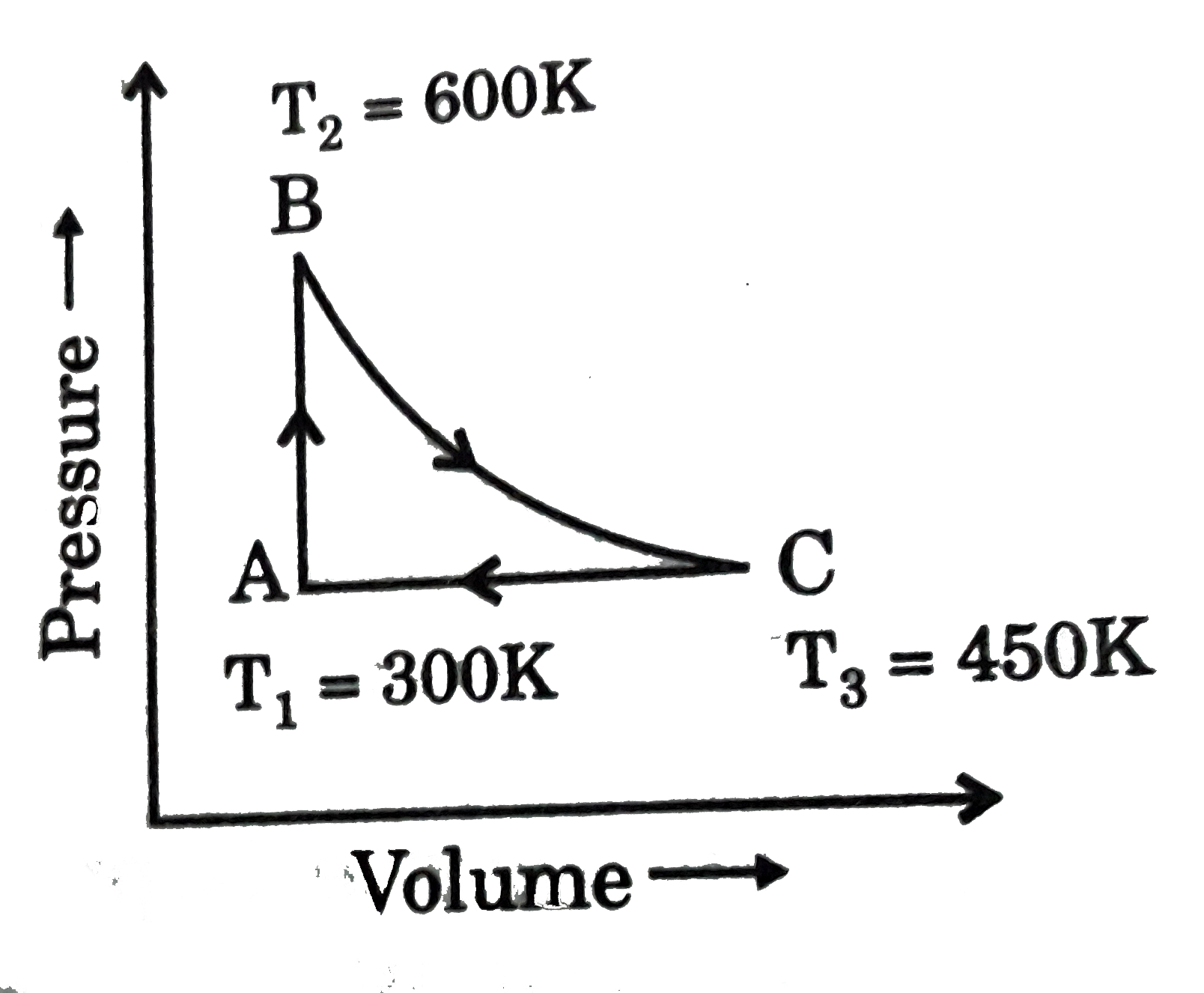
View SolutionTwo moles of Helium gas undergo a reversible cyclic process as shown in figure. Assuming gas to be ideal, what is the net work involved in the cyclic process ?
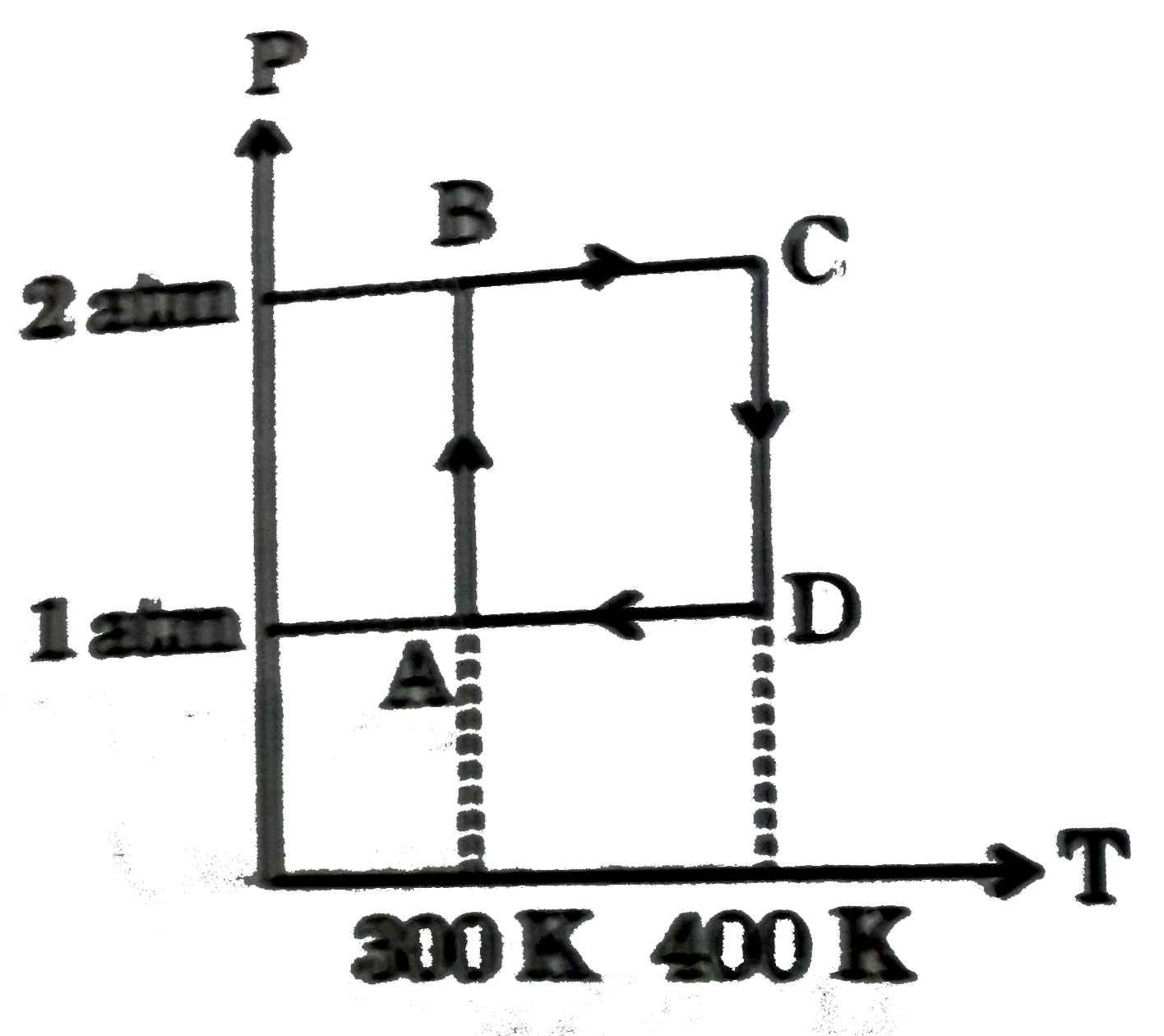
View SolutionIn the cyclic process shown in P-V diagram the magnitude of work done is :
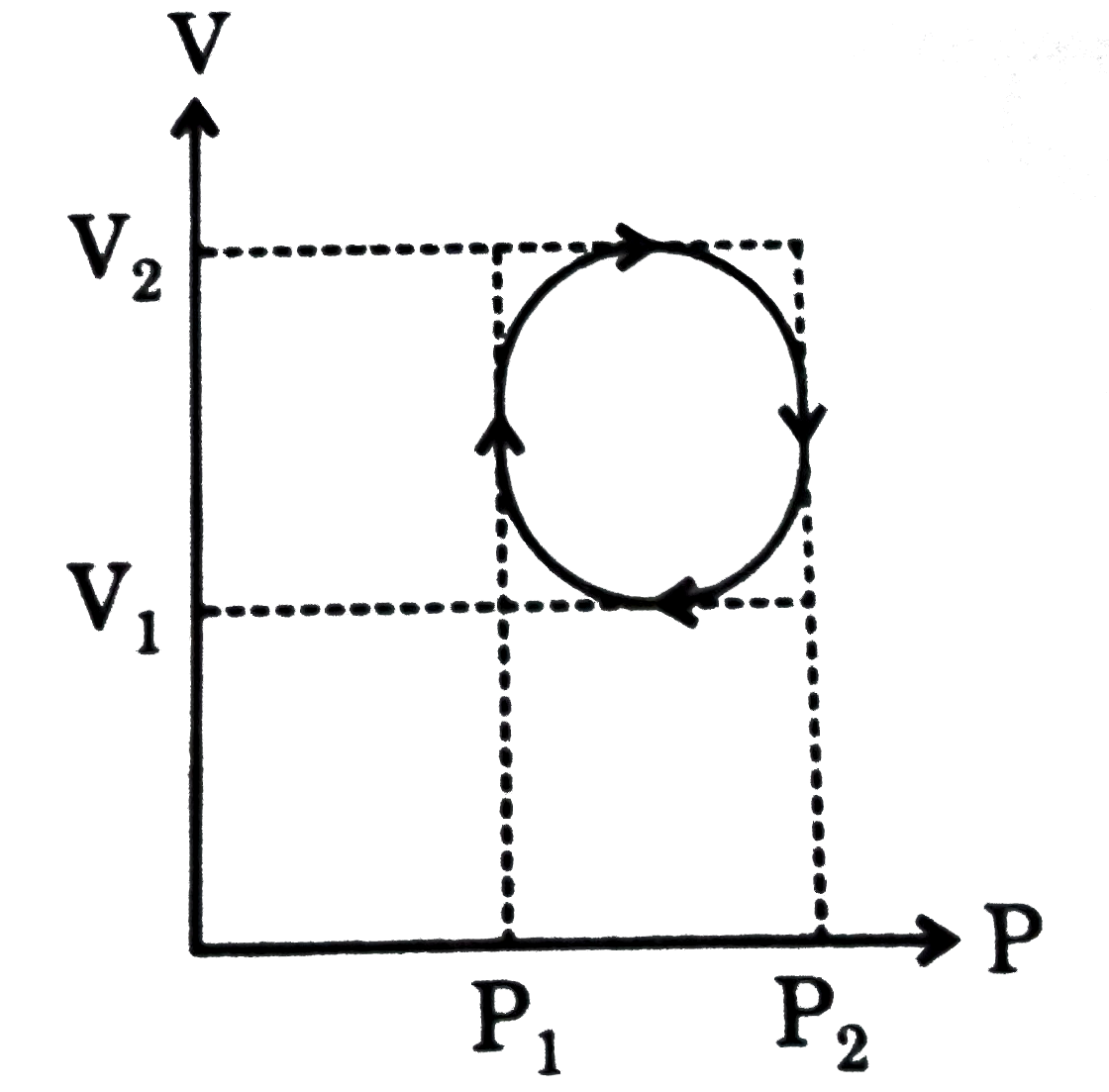
View SolutionP-V plot for two gases (assuming ideal) during adiabatic processes are given in the figure. Plot A and plot B should correspond respectively to :
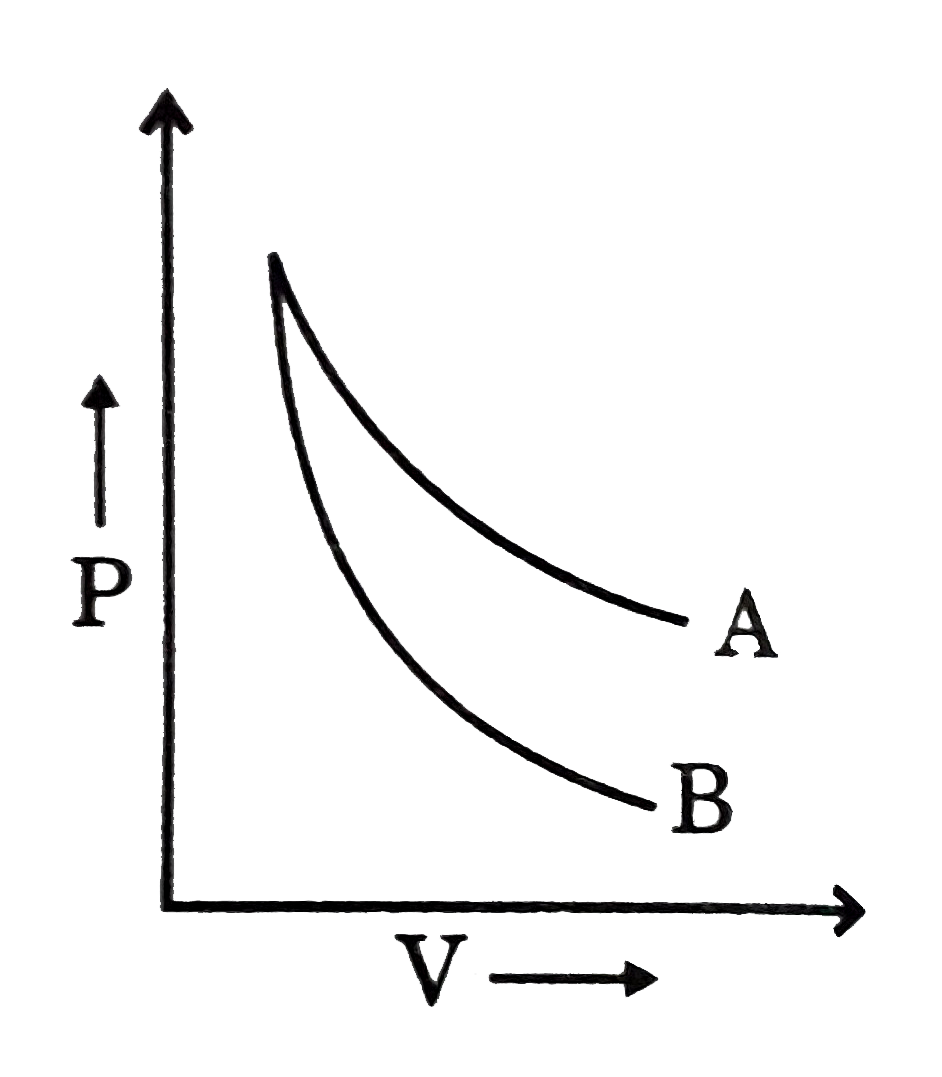
View SolutionA given mass of gas expends from the state A to the state B by three paths 1,2 and 3 as shown in the figure. If `w_(1),w_(2)` and `w_(3)` respectively be the magnitude of worl done by the gas along three paths then :
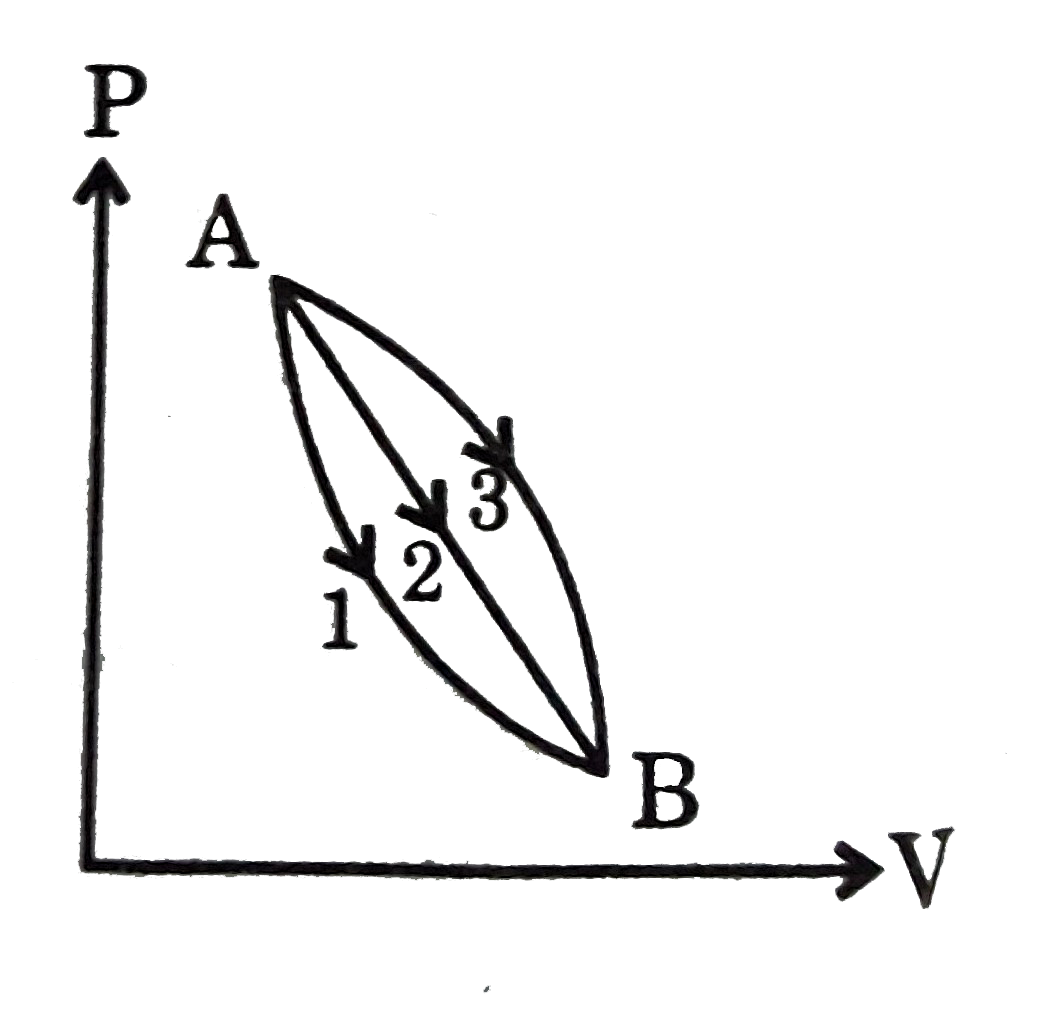
View SolutionFollowing graph shows a single stage expansion, then work done by the system is:
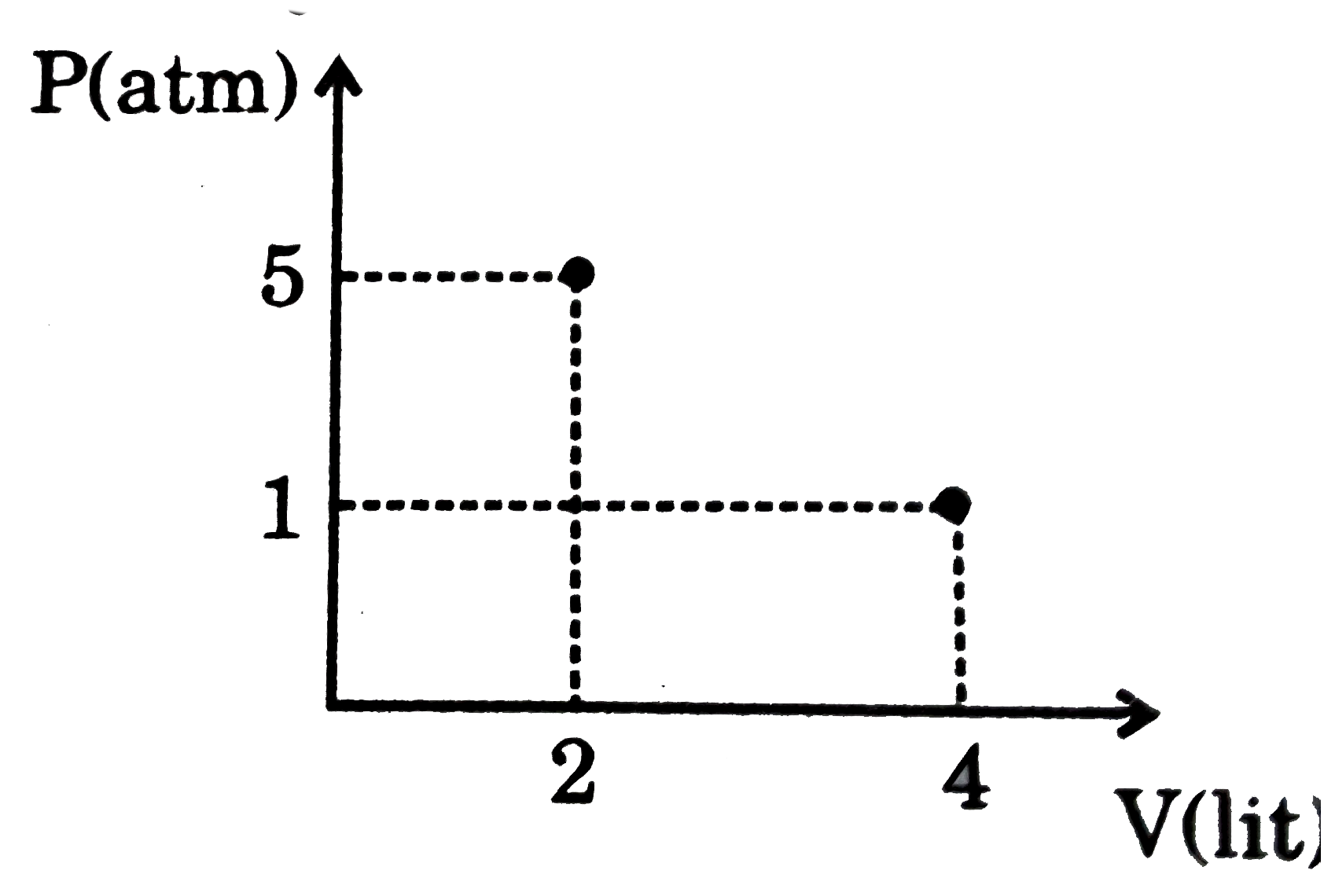
View SolutionOne mole of an ideal monoatomic gas undergoes a cyclic process as shown in figure. Then the change in the energy in expanding the gas from a to c along the path abc is:
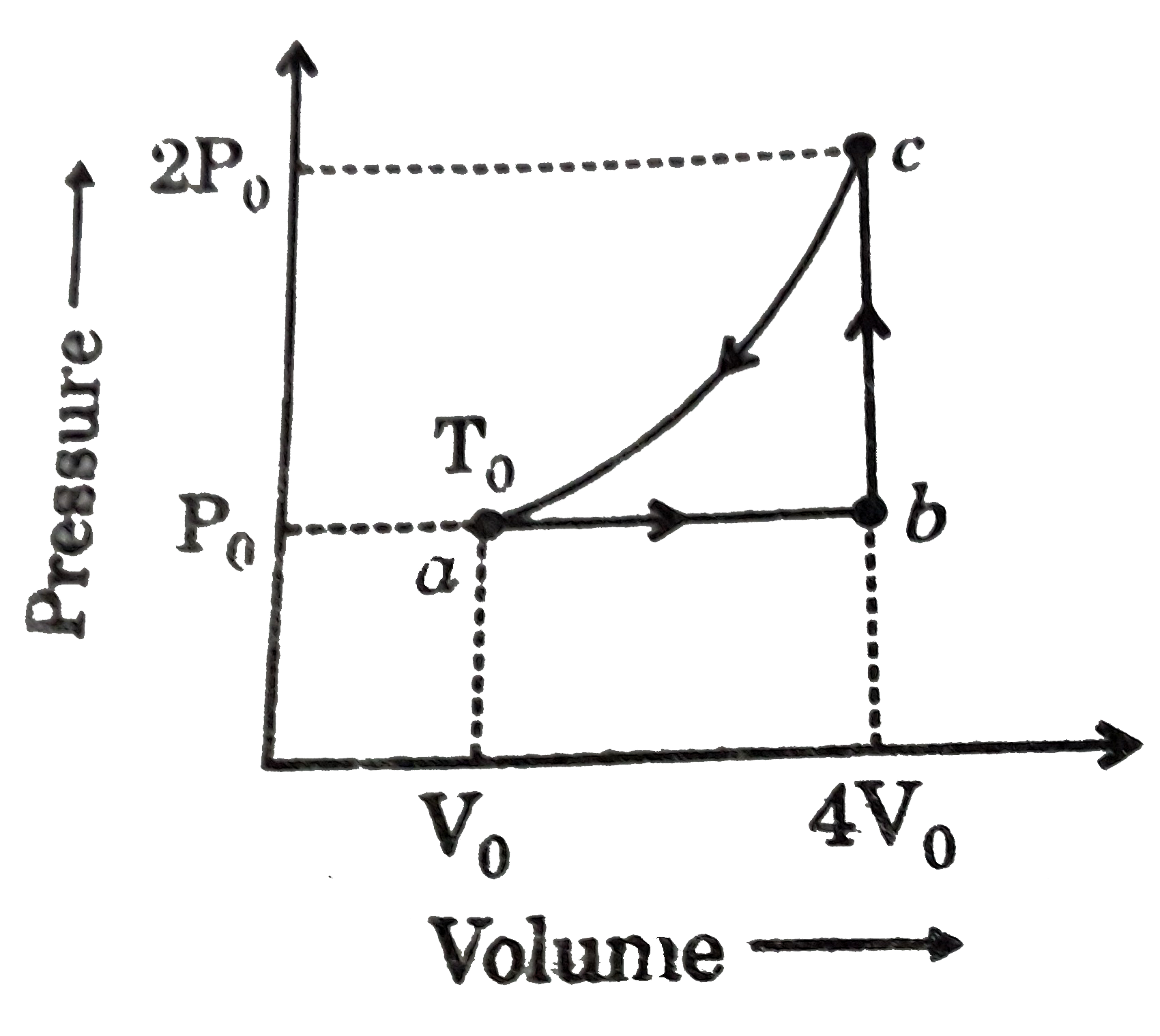
View SolutionA sample of 2 kg of helium (assumed ideal) is taken through the process ABC and another sample of 2 kg of the same gas is taken through the process ADC. Then, the temperature of the states A and B are : (Given `R = 8.3 J//"mol"-K)`:
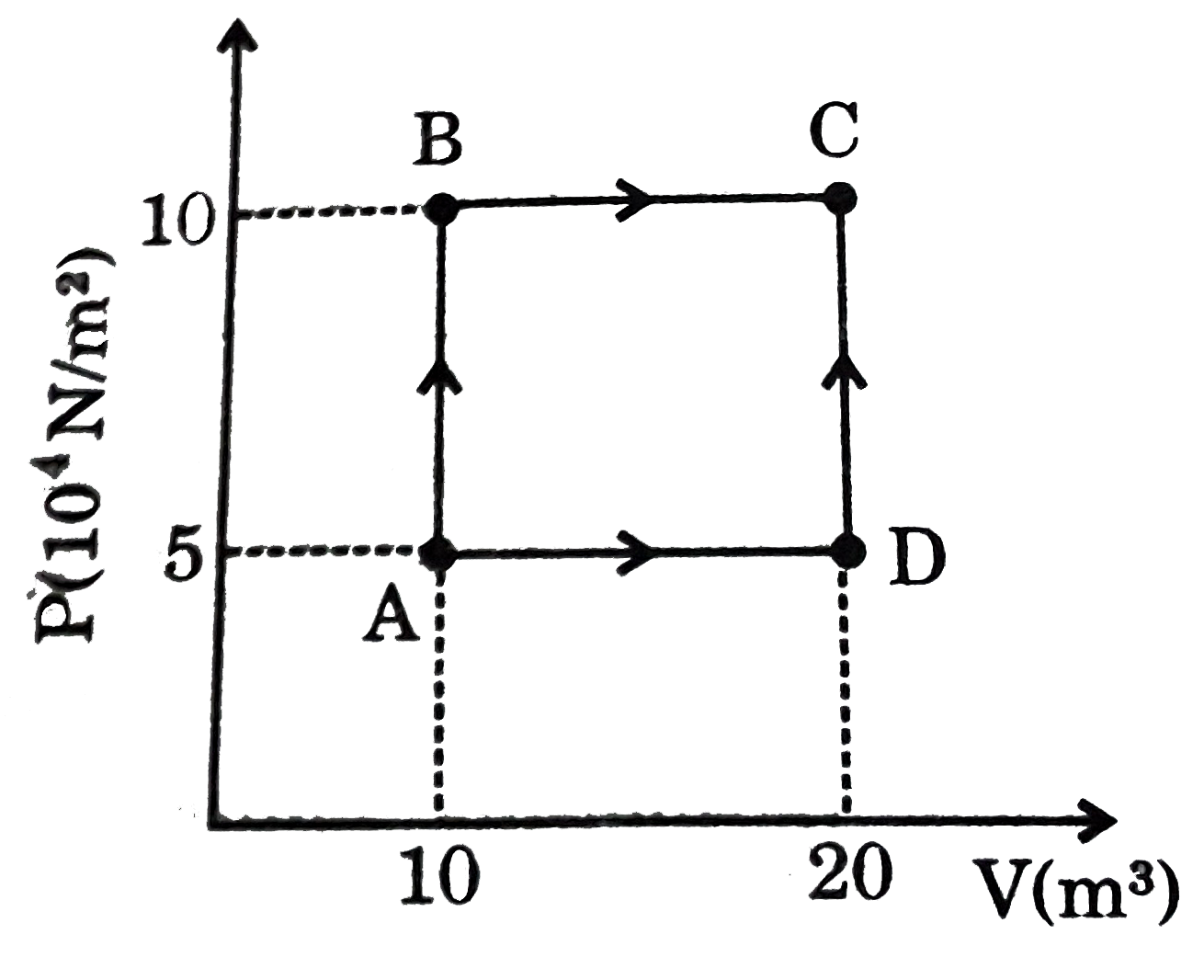
View SolutionWhich of the following options regarding area under the graph is/are correct ?
View SolutionFor an ideal gas subjected to different processes as shown by the graphs, select the graph which will involve greatest amount of heat exchange if initial and final temperature are same in all .
View Solution
Thermodynamics questions and complete solutions for chapter GRAPHICAL INTERPRETATION of GRB CHEMISTRY (HINGLISH) of Class 12
All Exercises from GRB PUBLICATION Class 12 CHEMISTRY GRAPHICAL INTERPRETATION
- A. Thermodynamics
- Atomic Sturcture
- B. Gaseous State
- C. Atomic Sturcture
- Chemical Equilibrium
- Chemical Kinetics
- Comprehension
- Comprehension 1
- Comprehension 10
- Comprehension 11
- Comprehension 12
- Comprehension 13
- Comprehension 14
- Comprehension 15
- Comprehension 16
- Comprehension 17
- Comprehension 18
- Comprehension 19
- Comprehension 2
- Comprehension 20
- Comprehension 21
- Comprehension 22
- Comprehension 23
- Comprehension 24
- Comprehension 25
- Comprehension 26
- Comprehension 27
- Comprehension 28
- Comprehension 29
- Comprehension 3
- Comprehension 4
- Comprehension 5
- Comprehension 6
- Comprehension 7
- Comprehension 8
- Comprehension 9
- D. Liquid Solutions
- E. Surface Chemistry
- Electrochemistry
- F. Ionic Equilibrium
- G. Chemical Equilibrium
- Gaseous State
- H. Chemical Kinetics
- I.Electrochemistry
- Ionic Equilibrium
- Liquid Solutions
- Match The Column Type
- Multiple Objective Type
- Subjective Type
- Surface Chemistry
- Thermodynamics